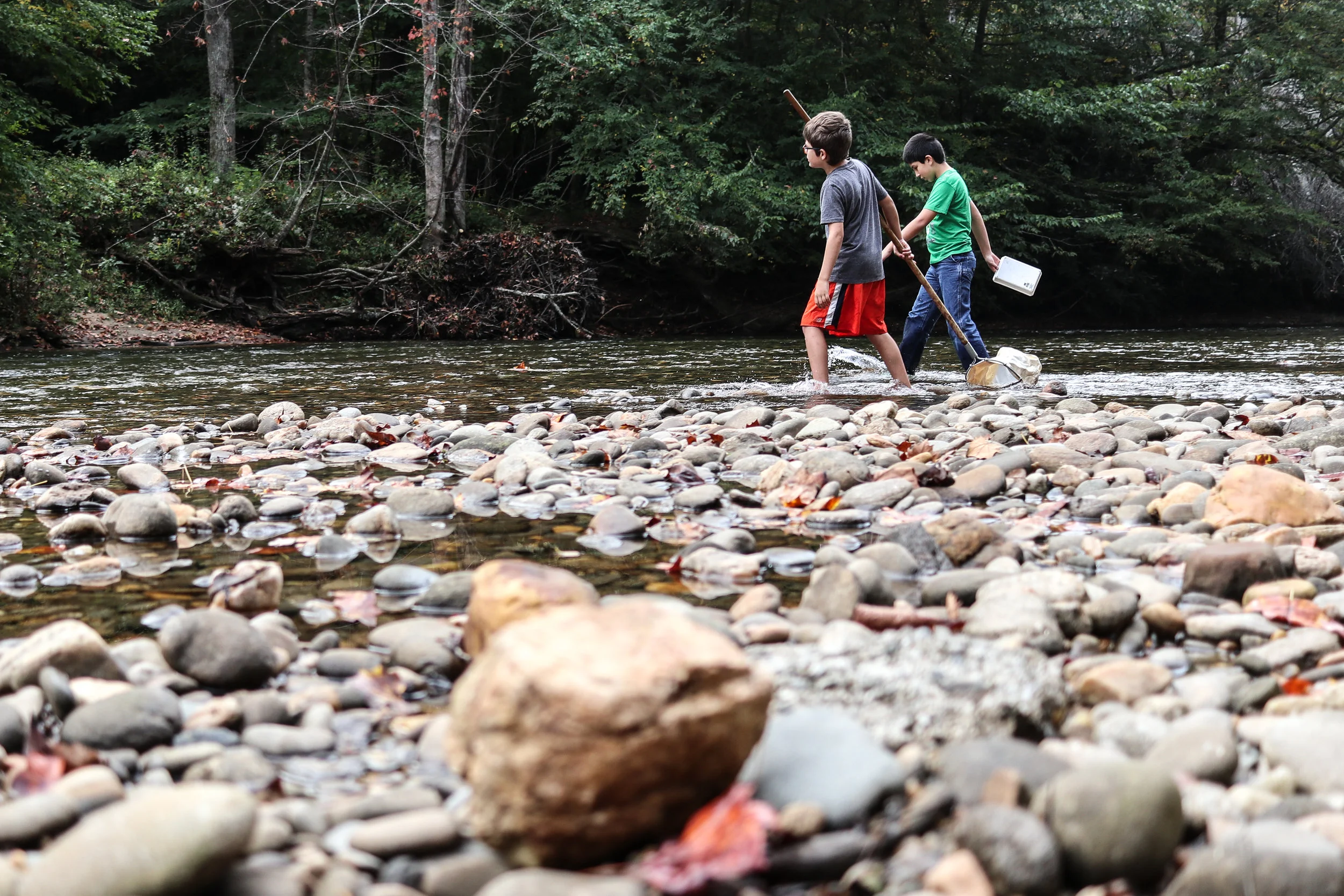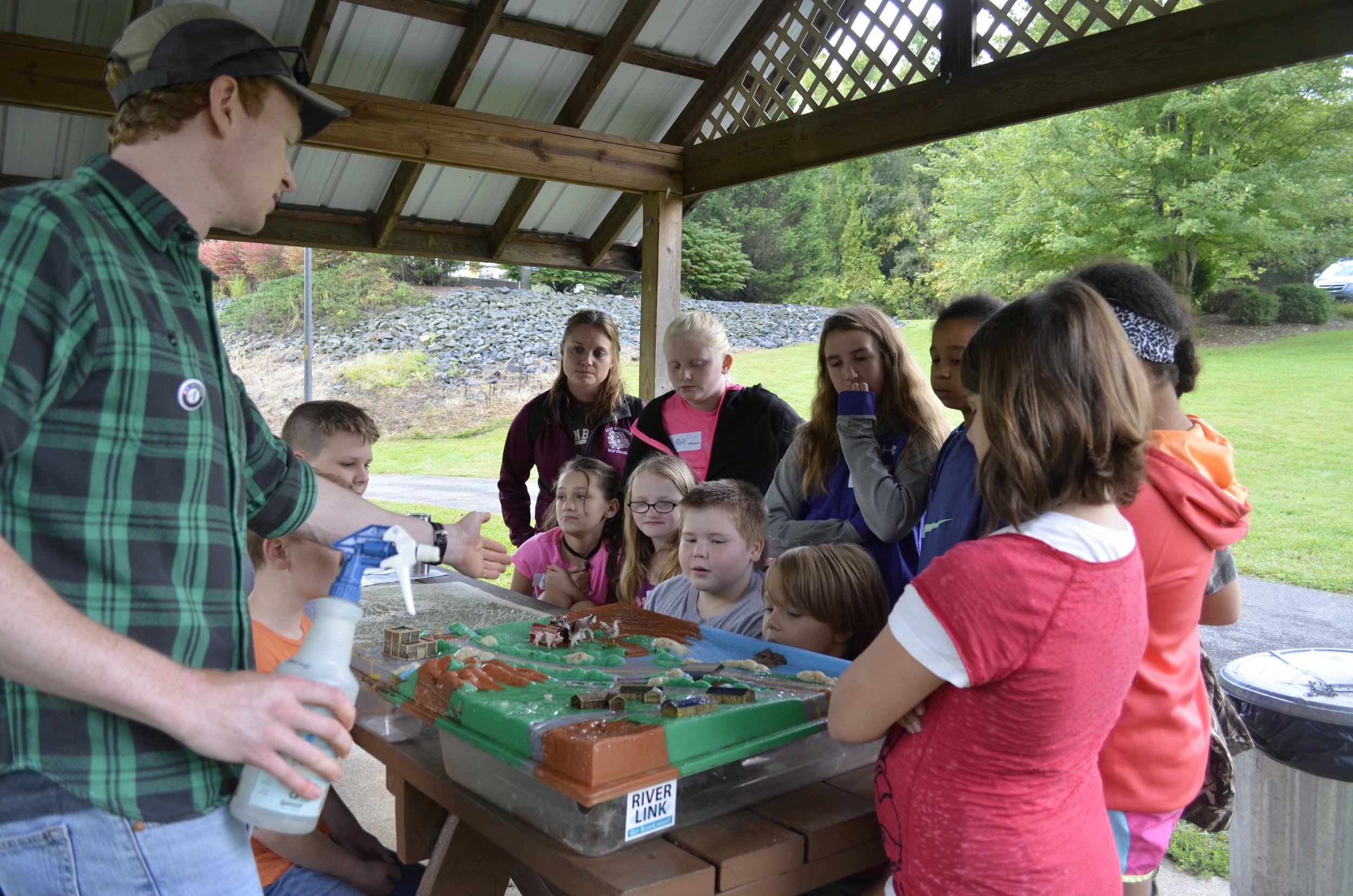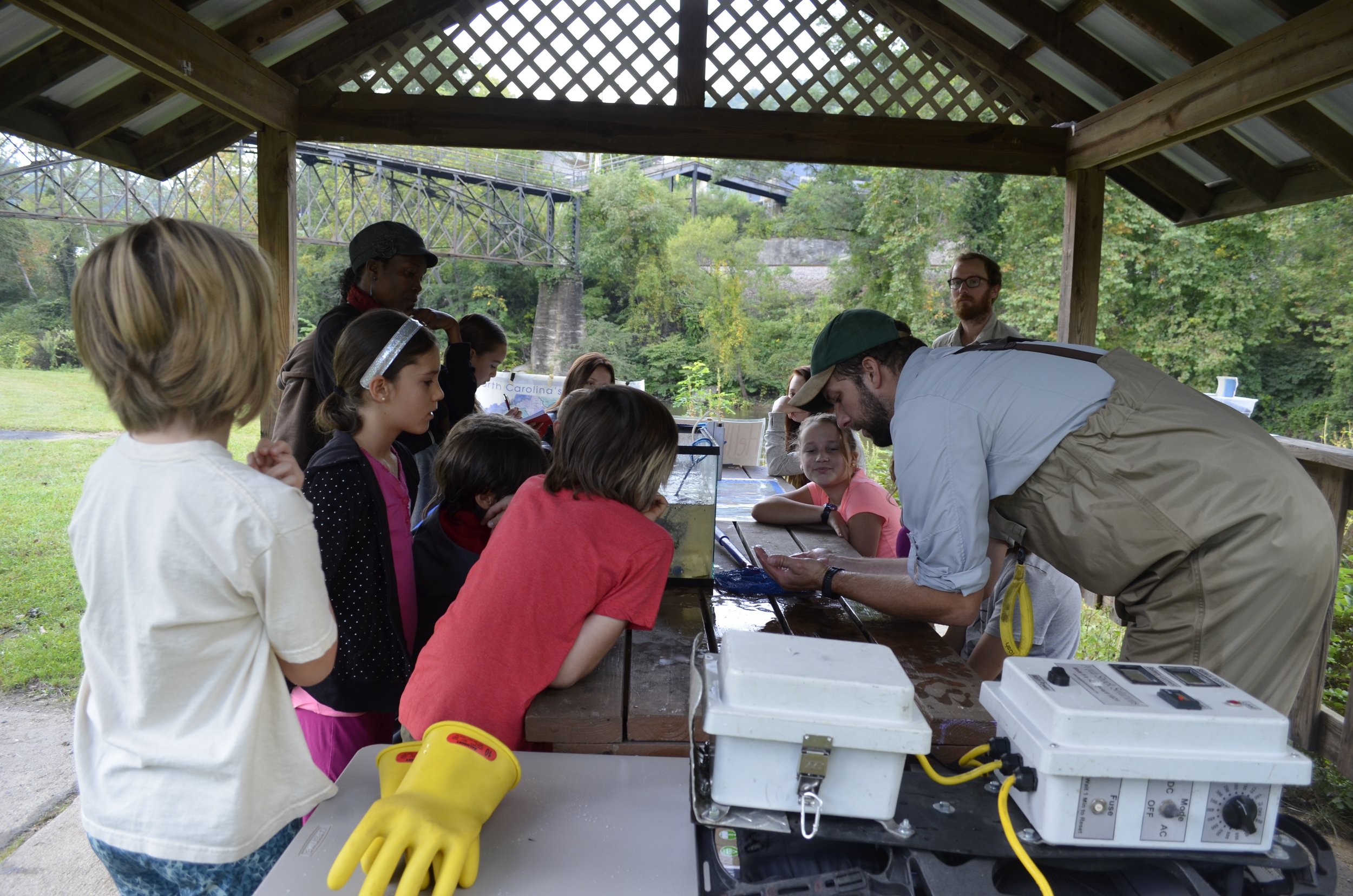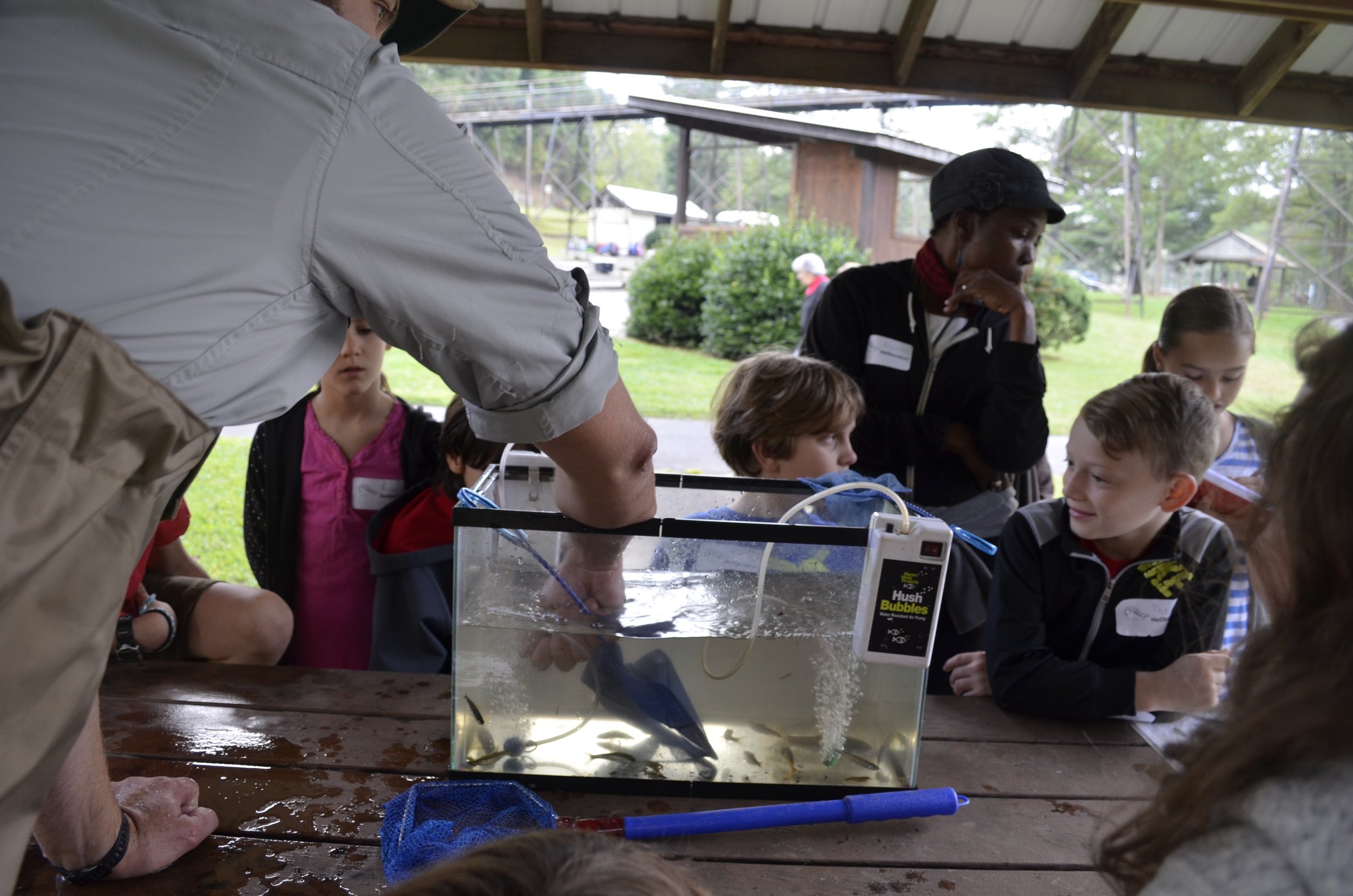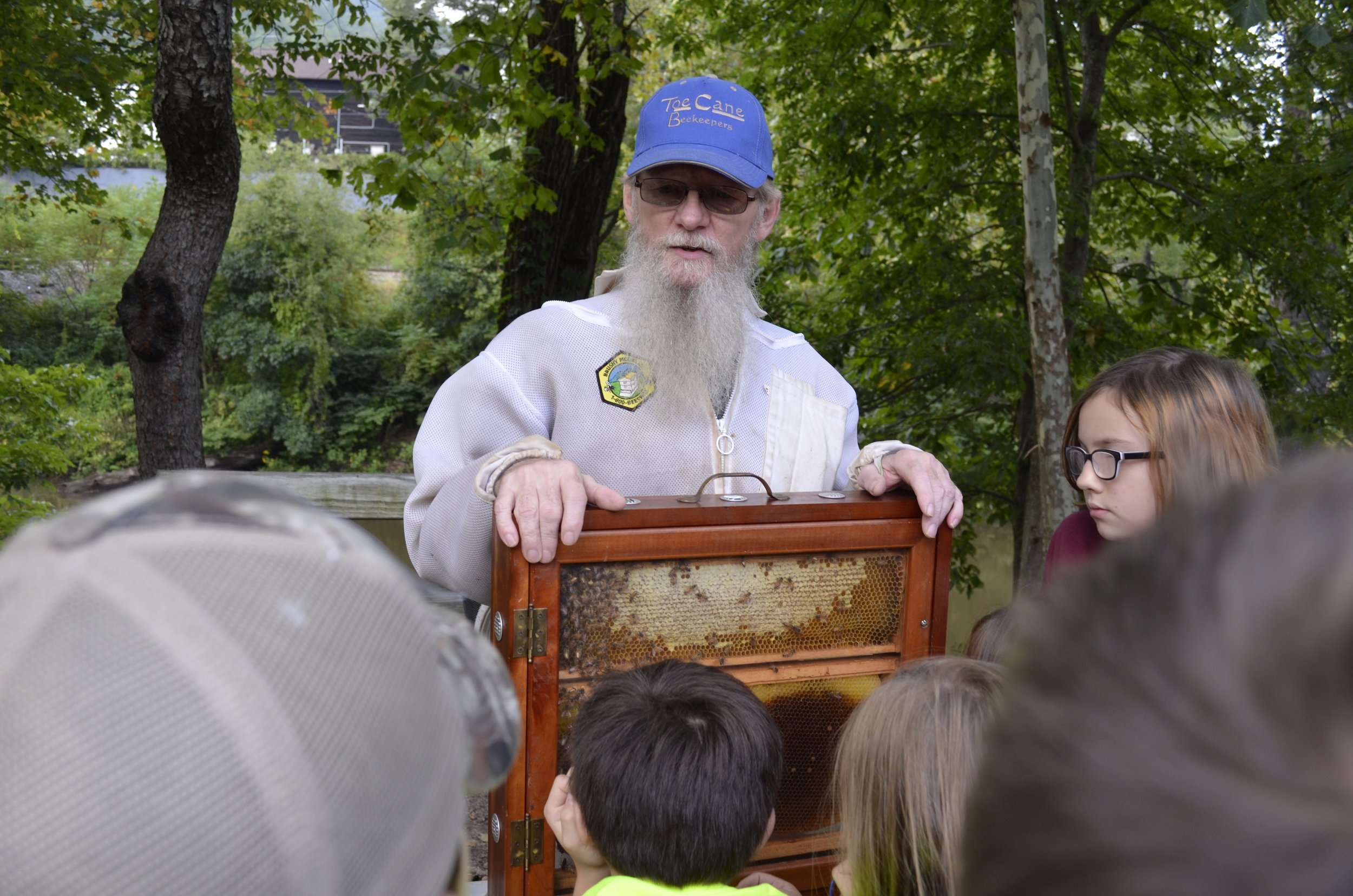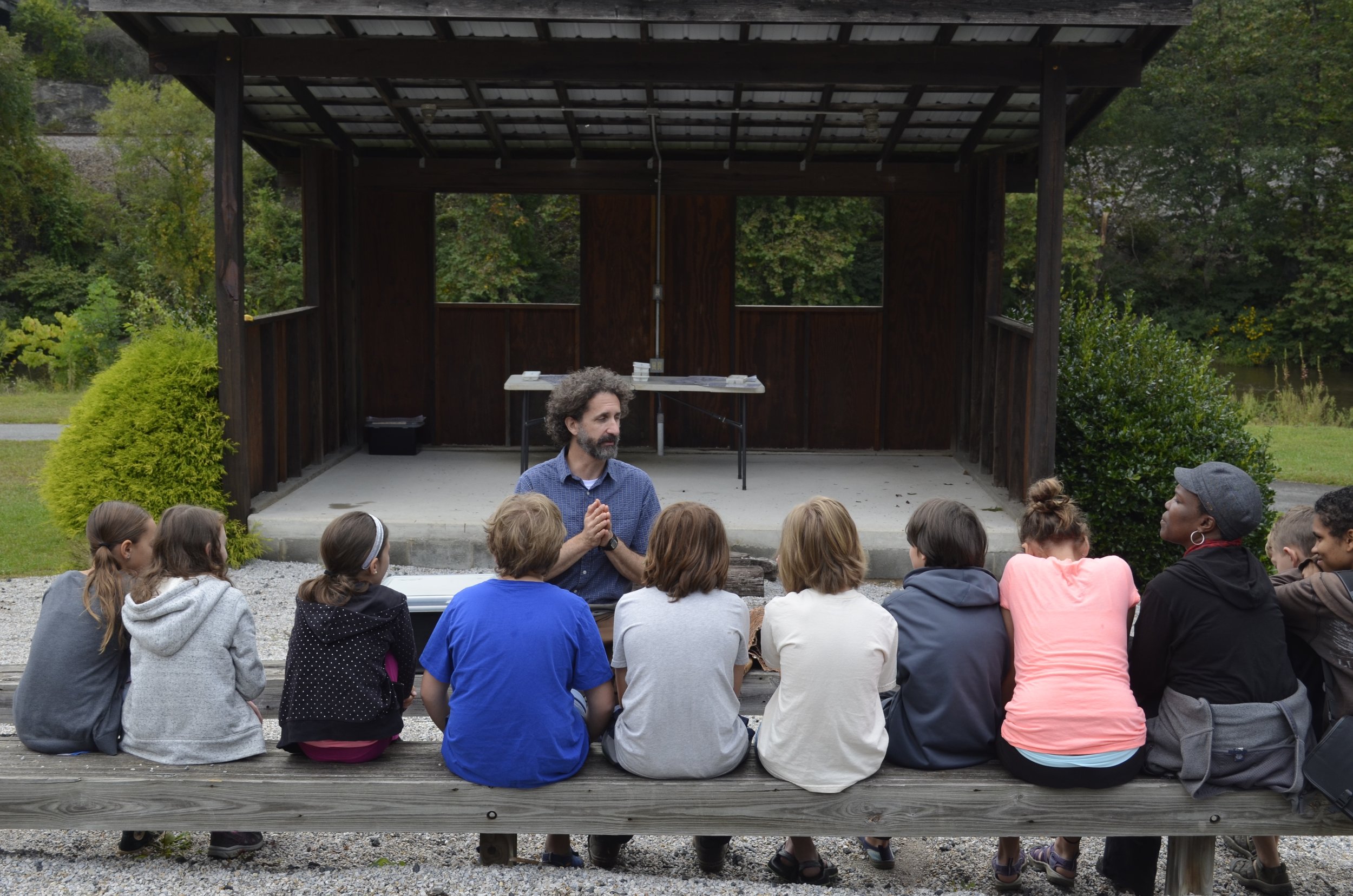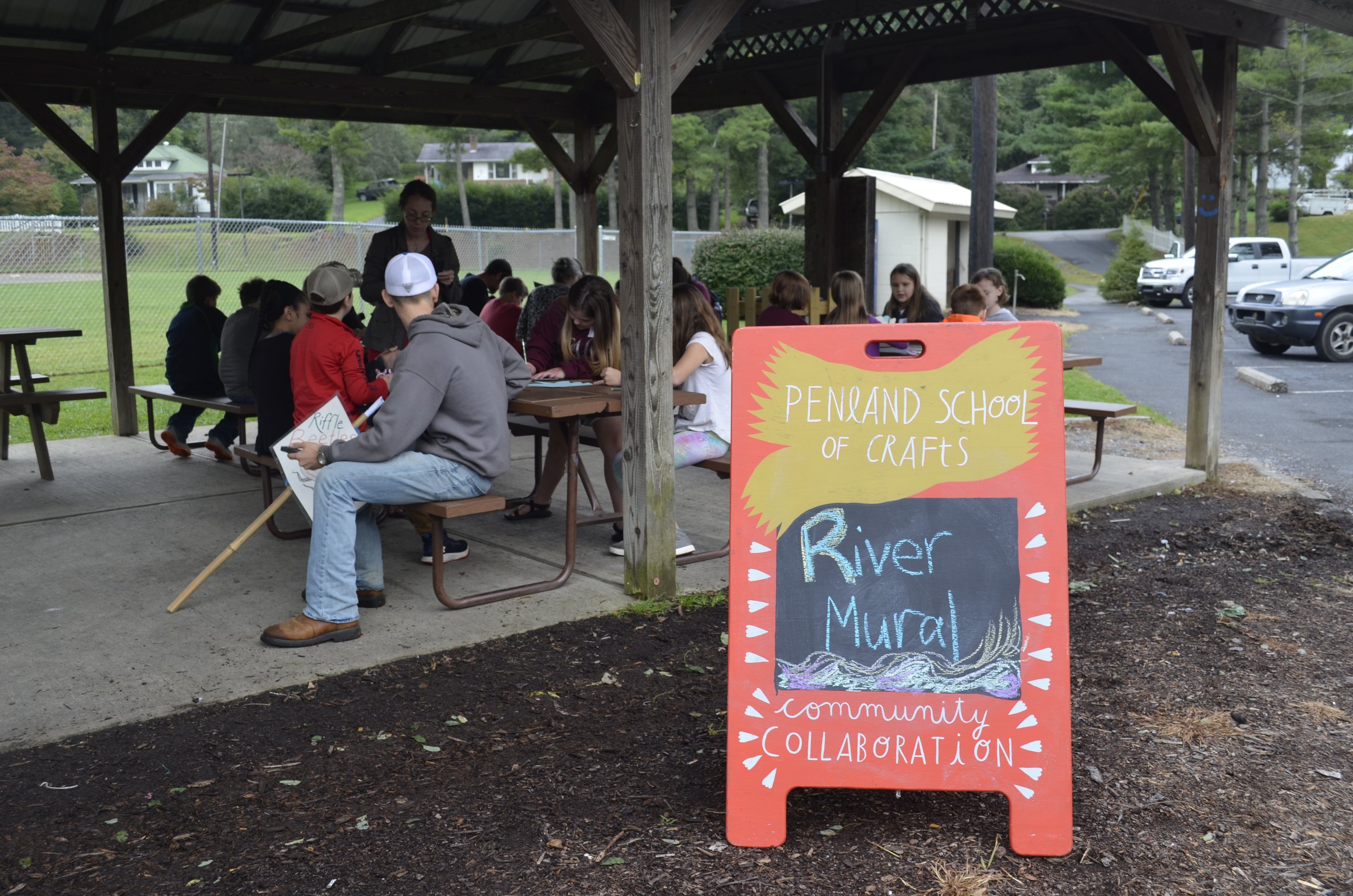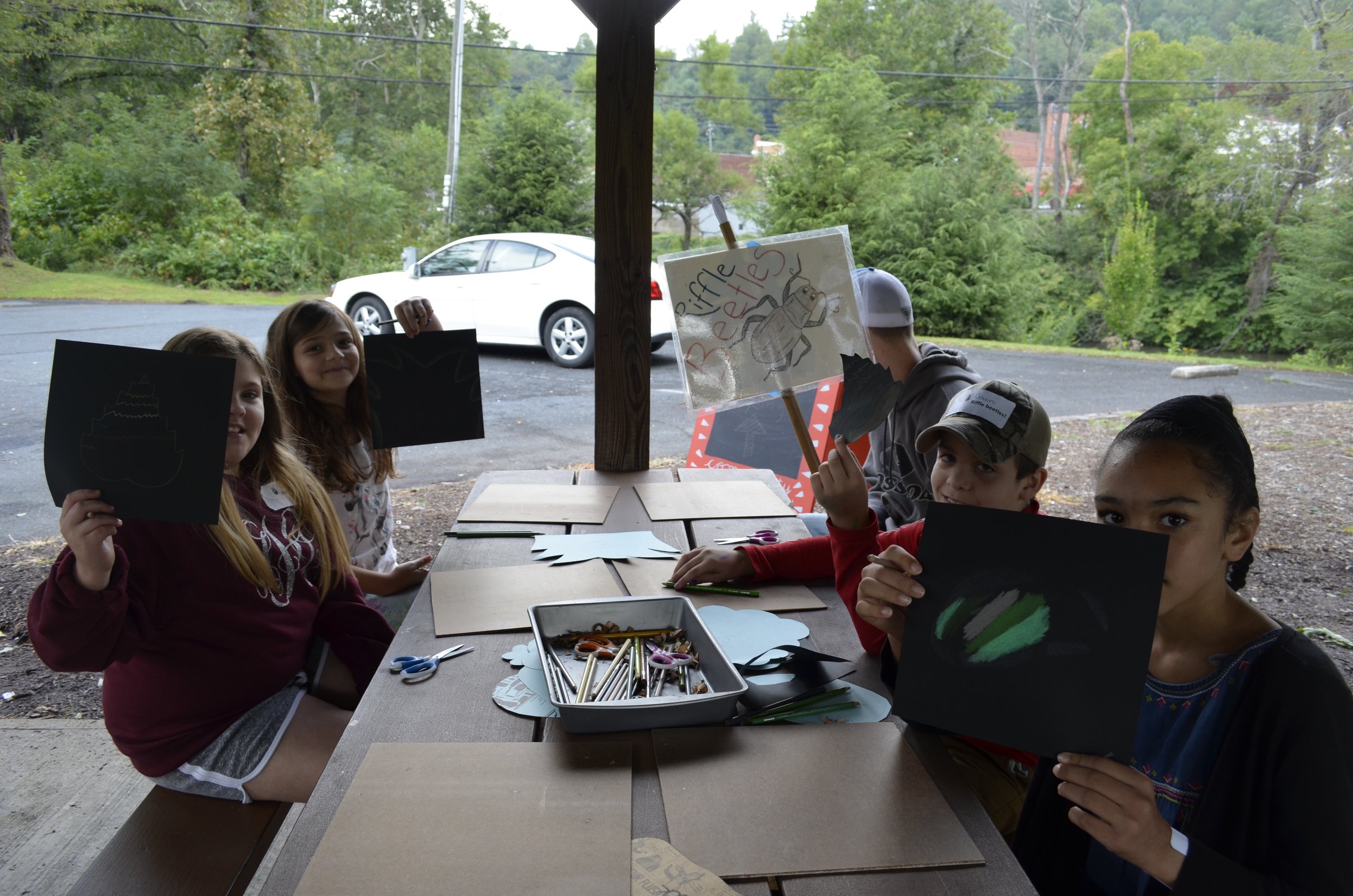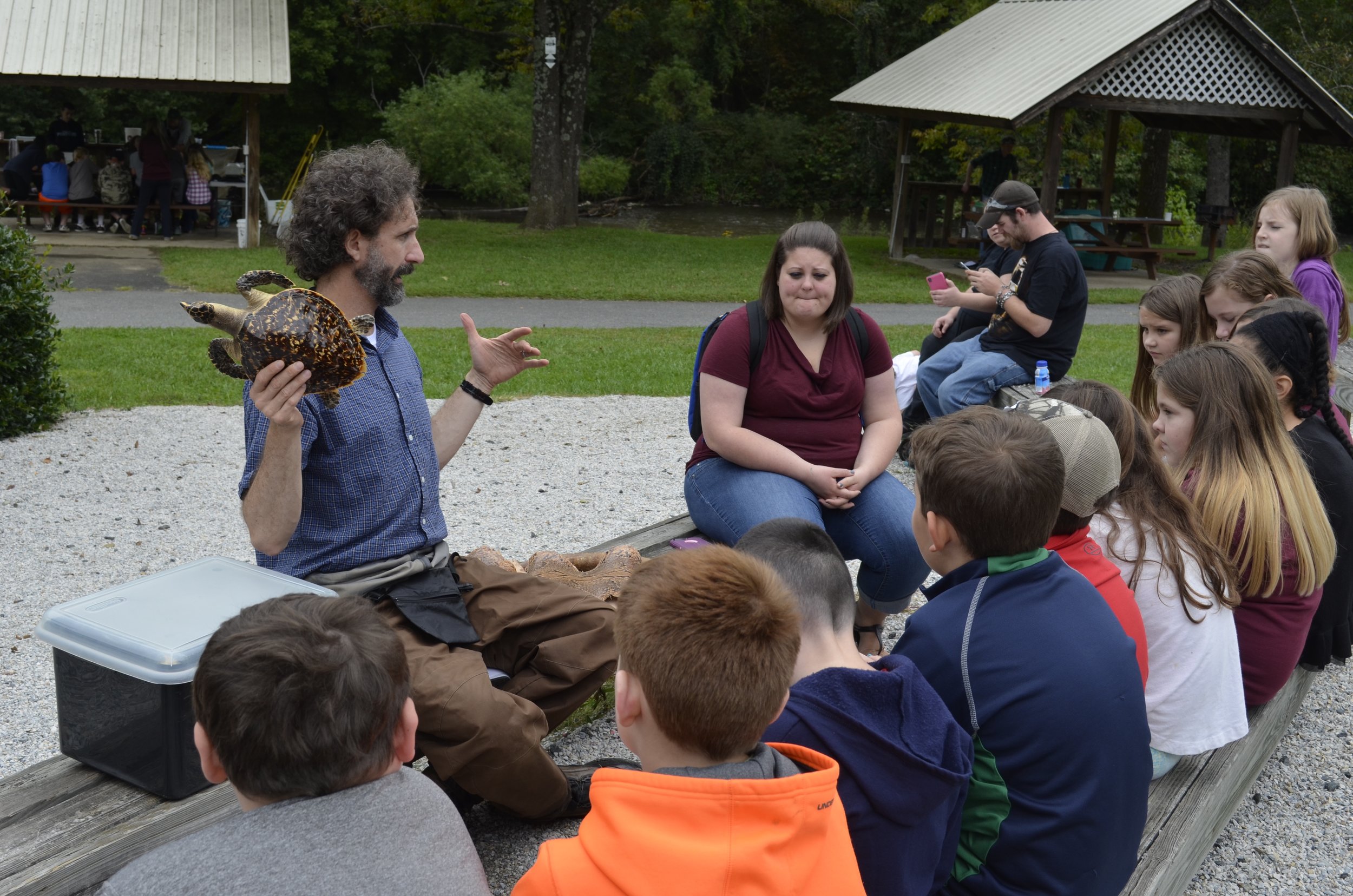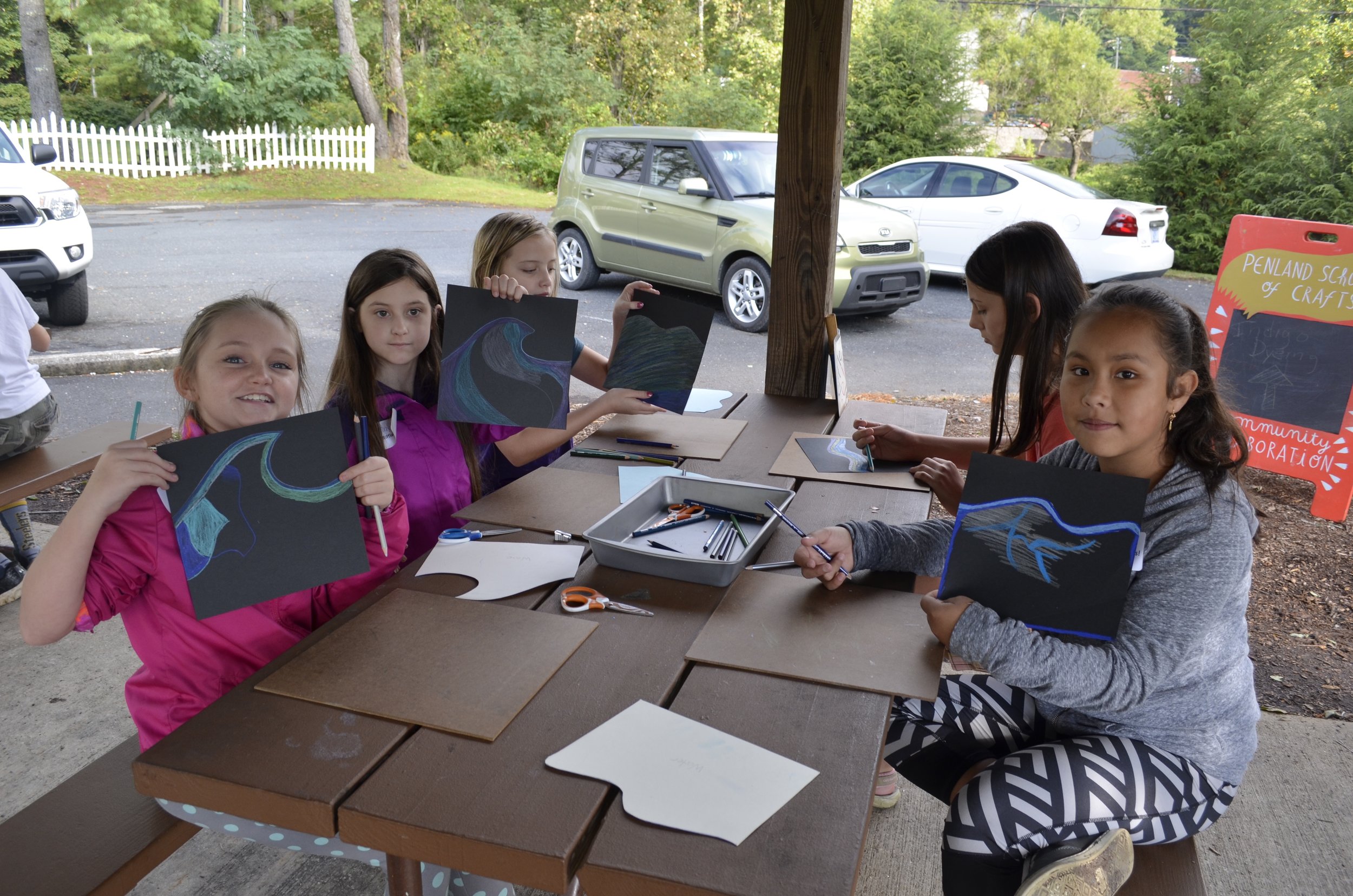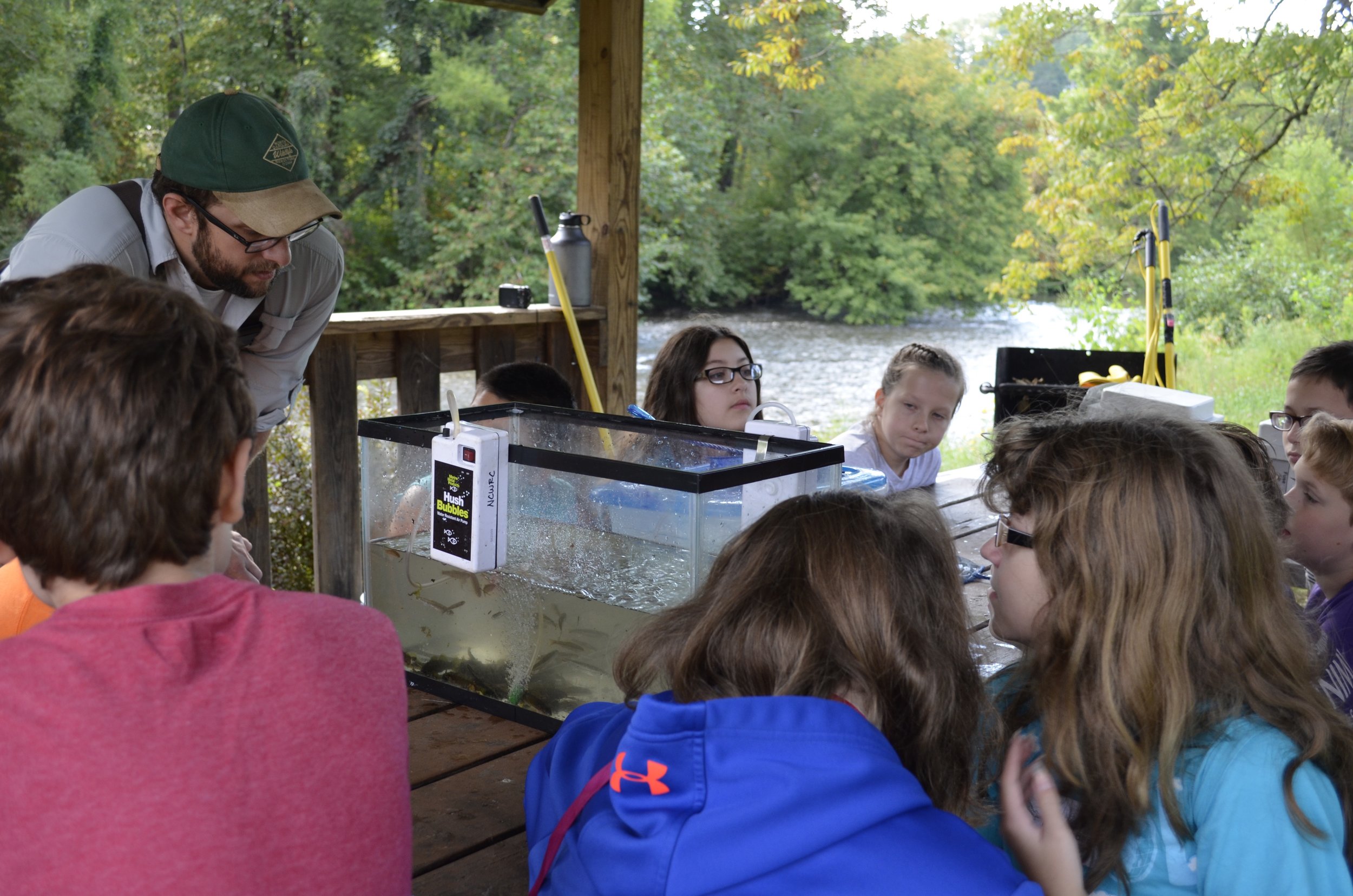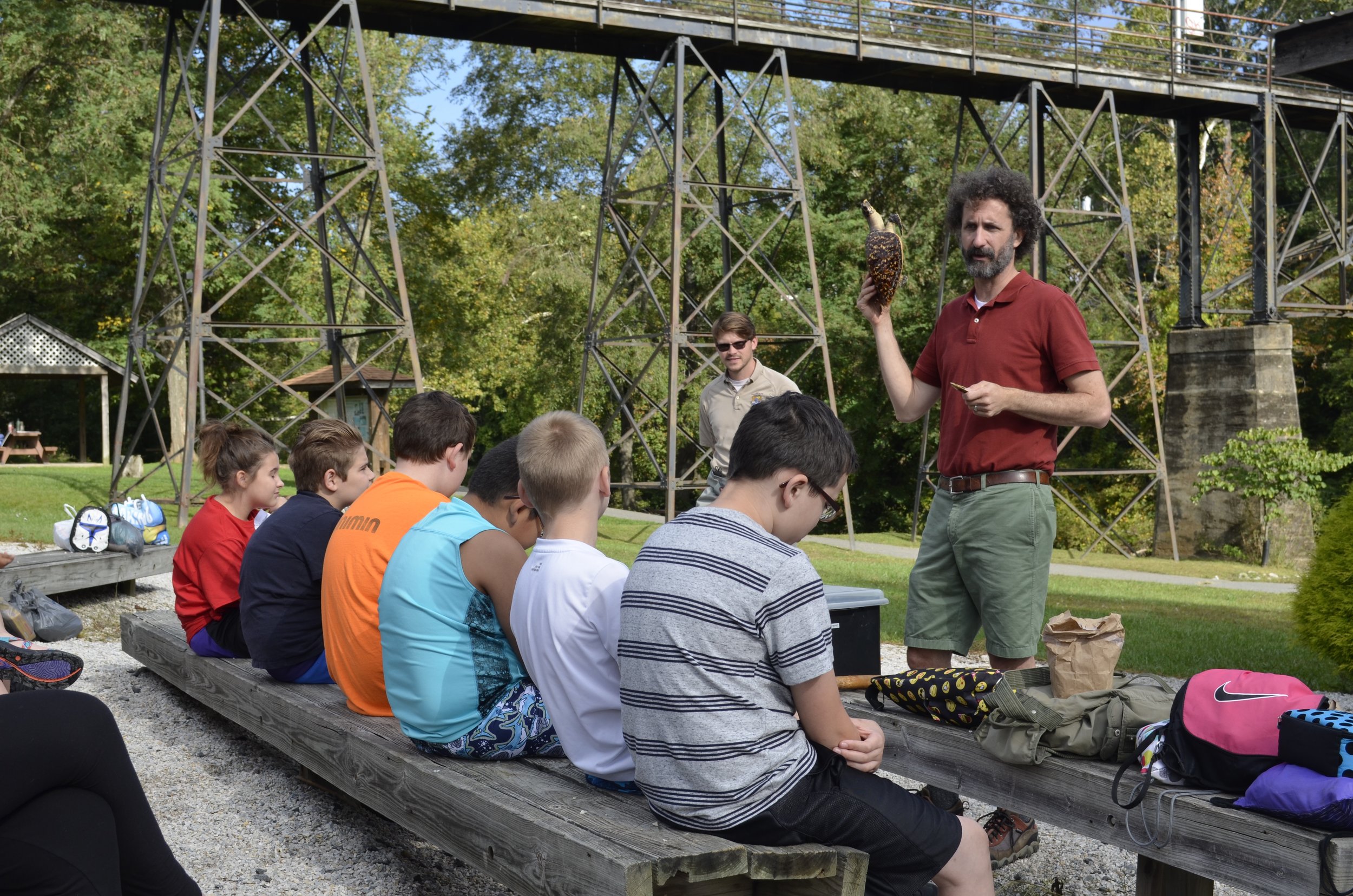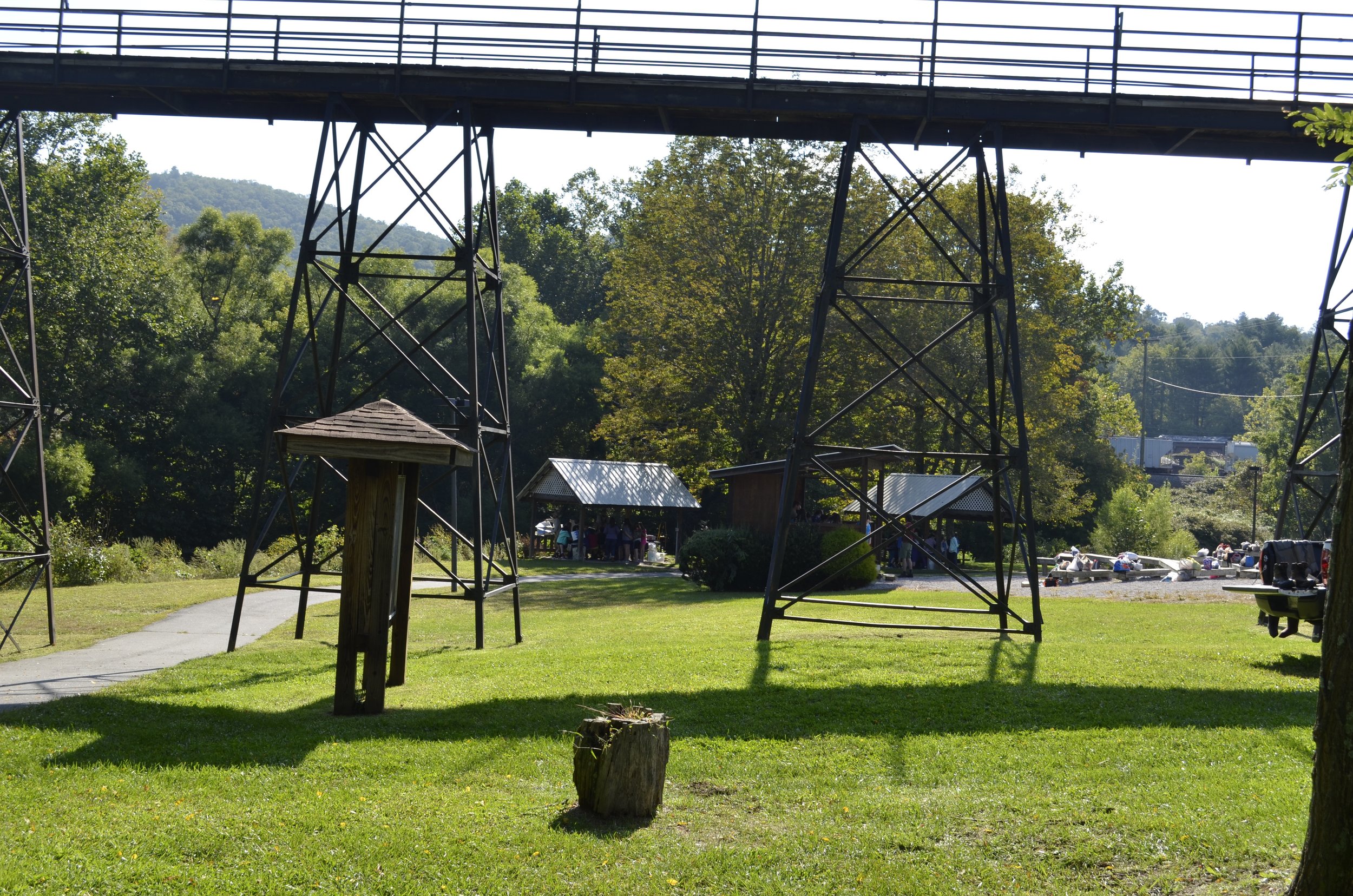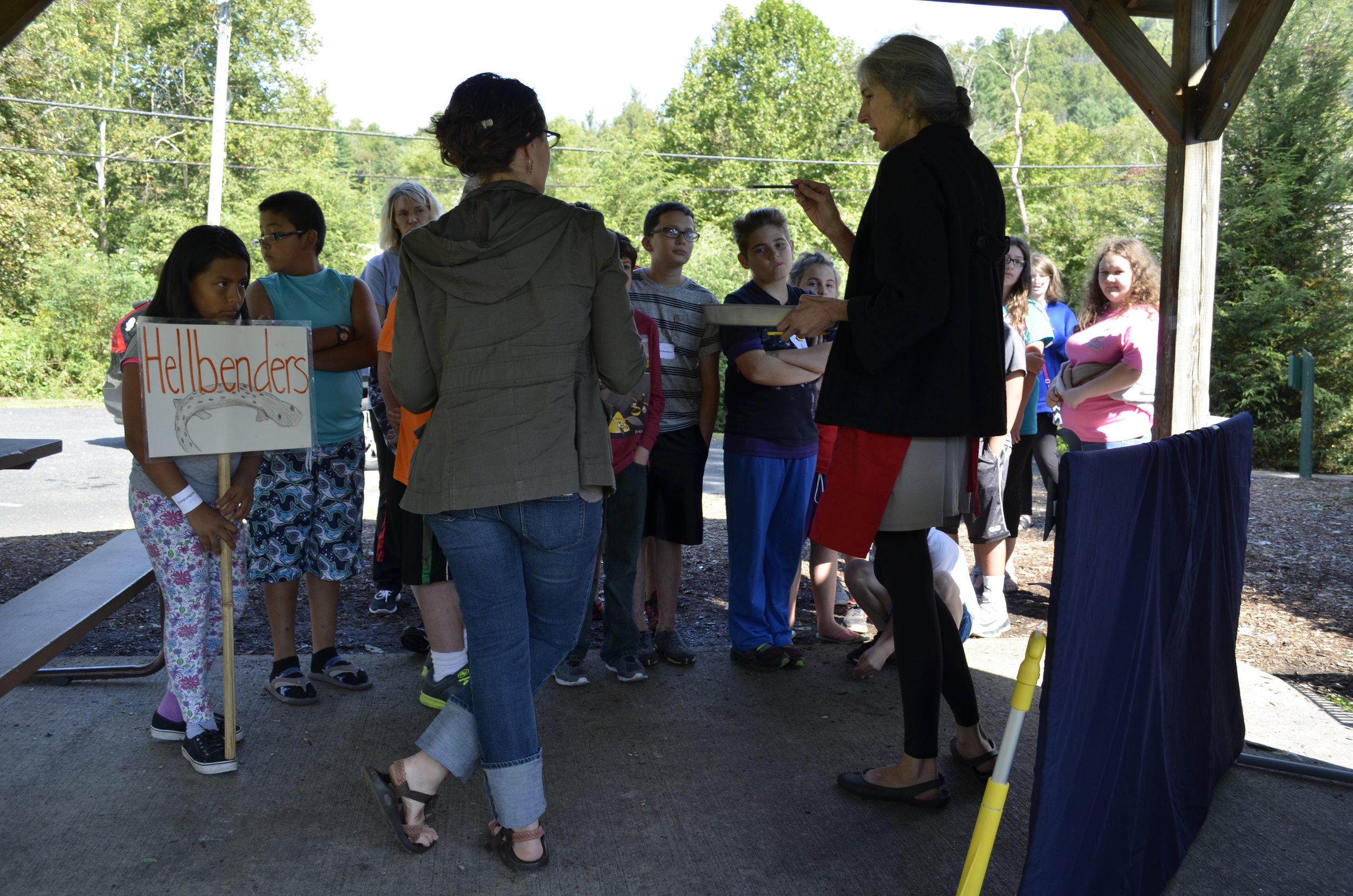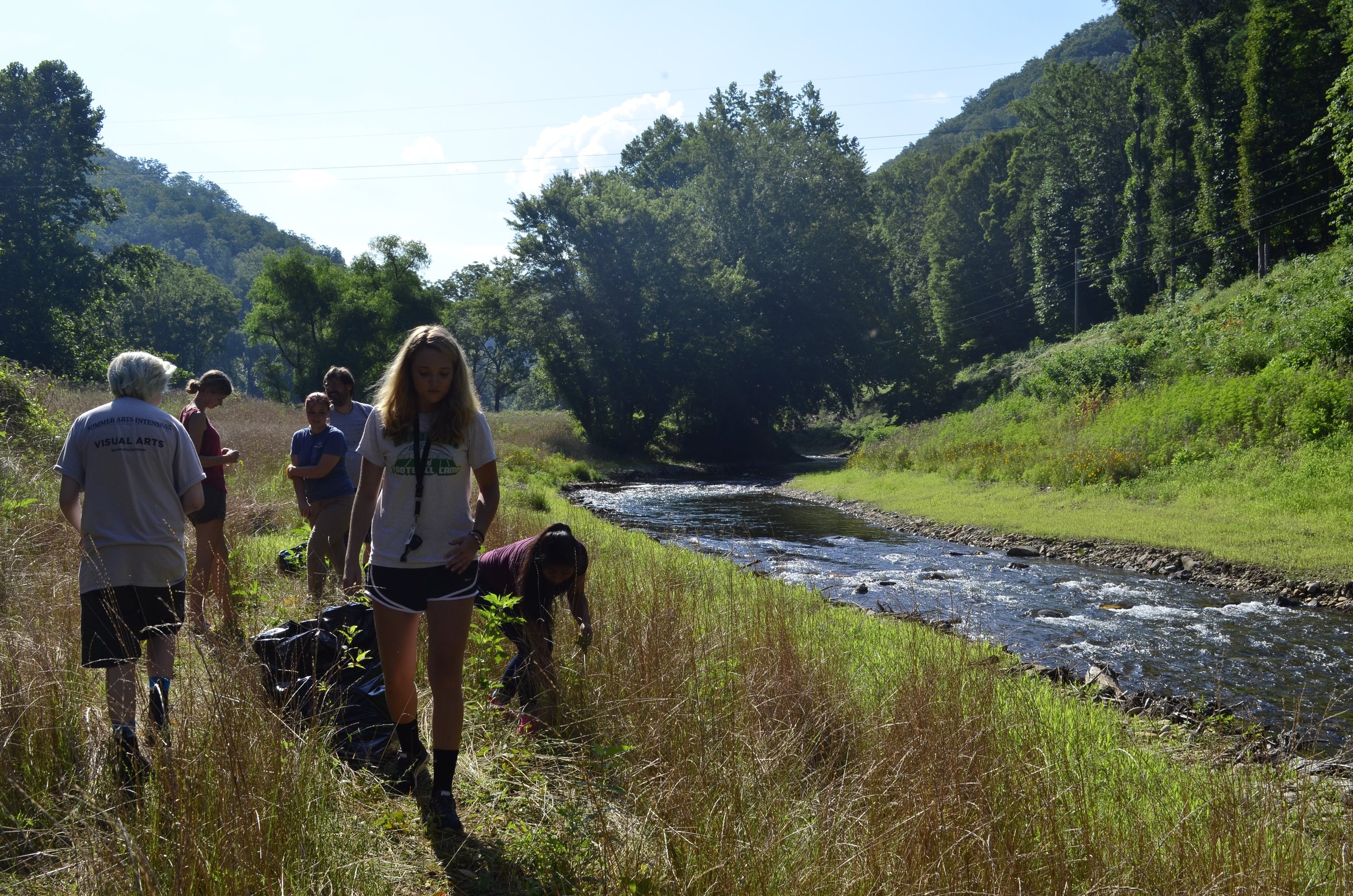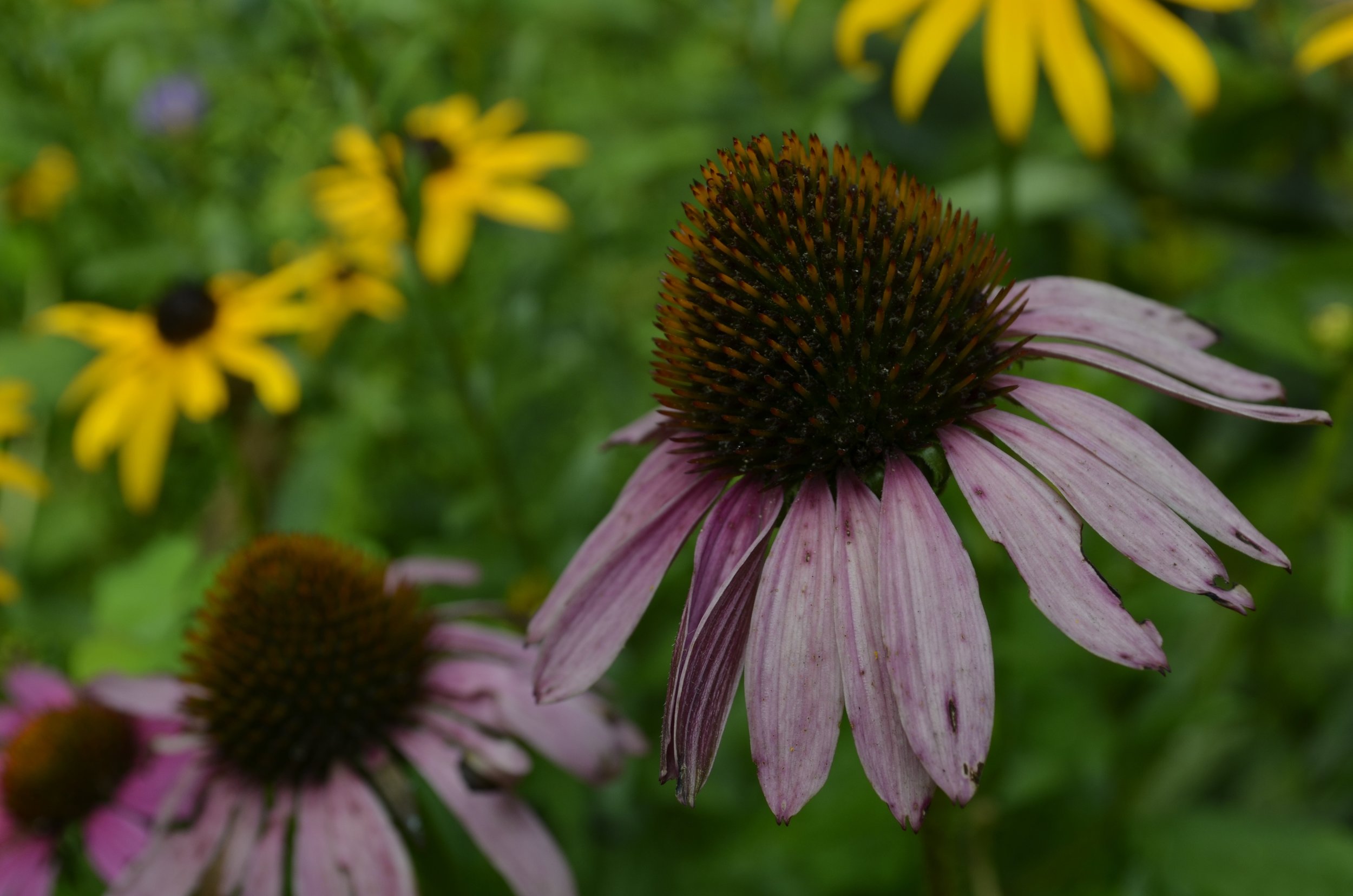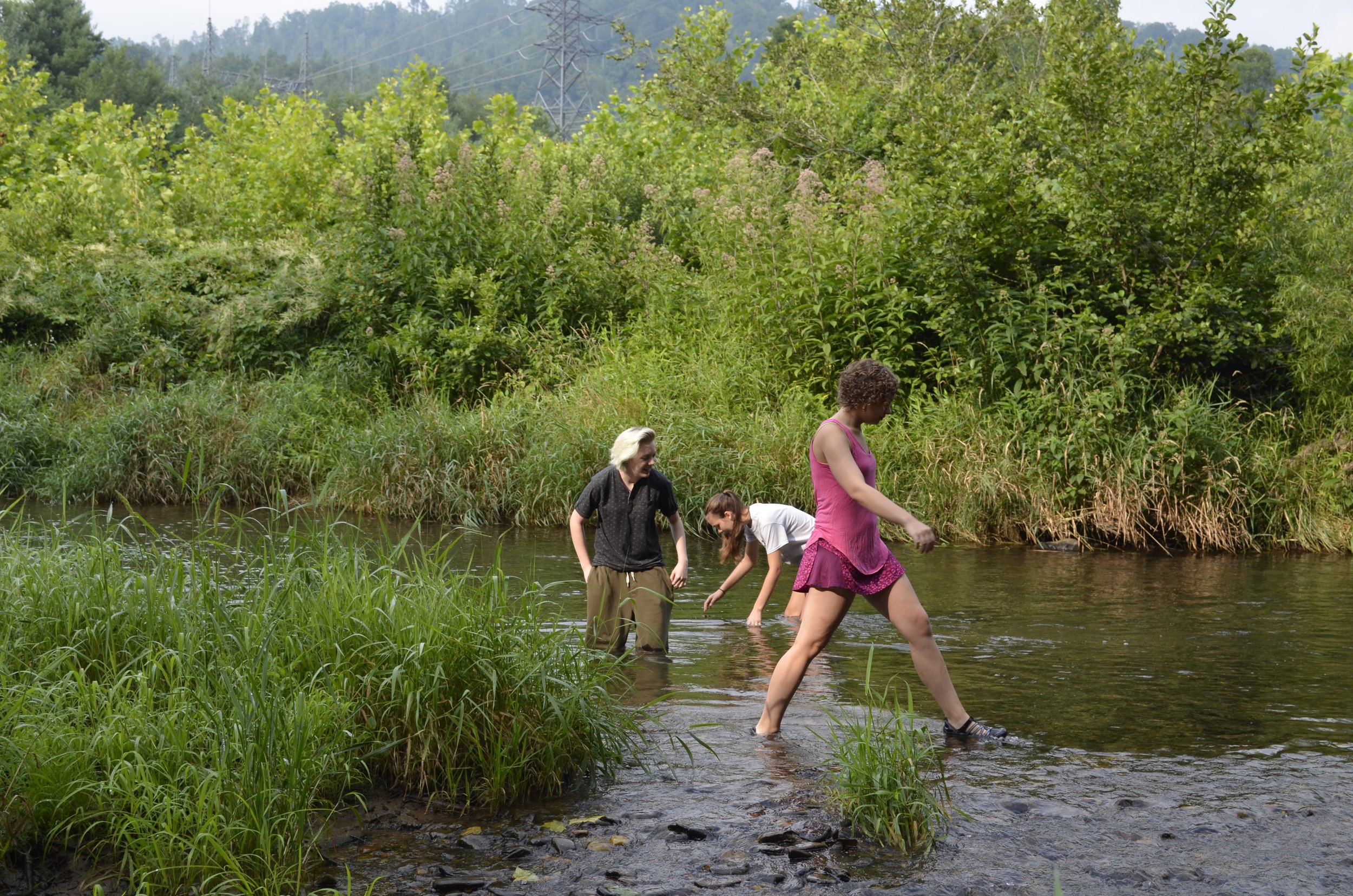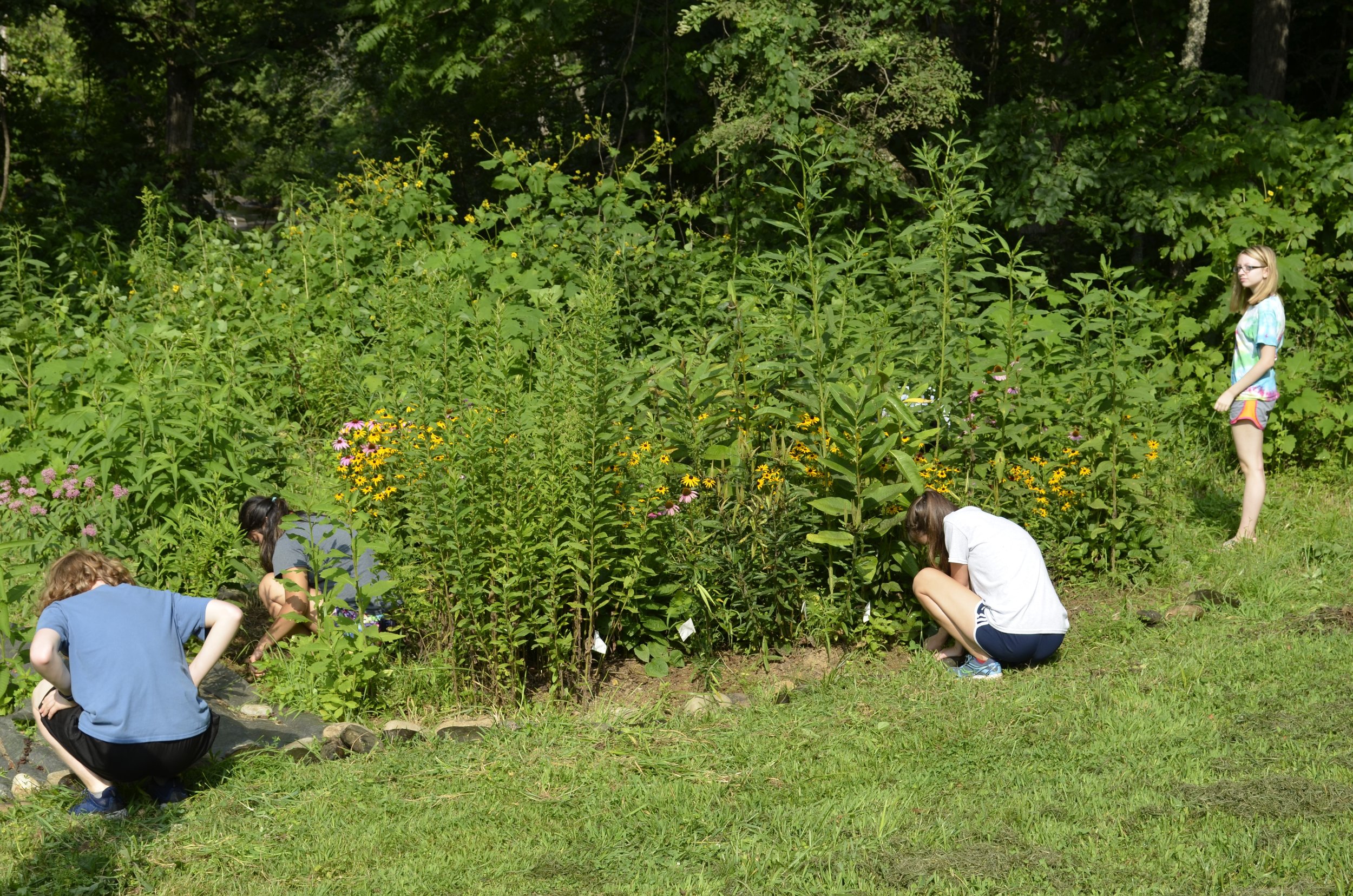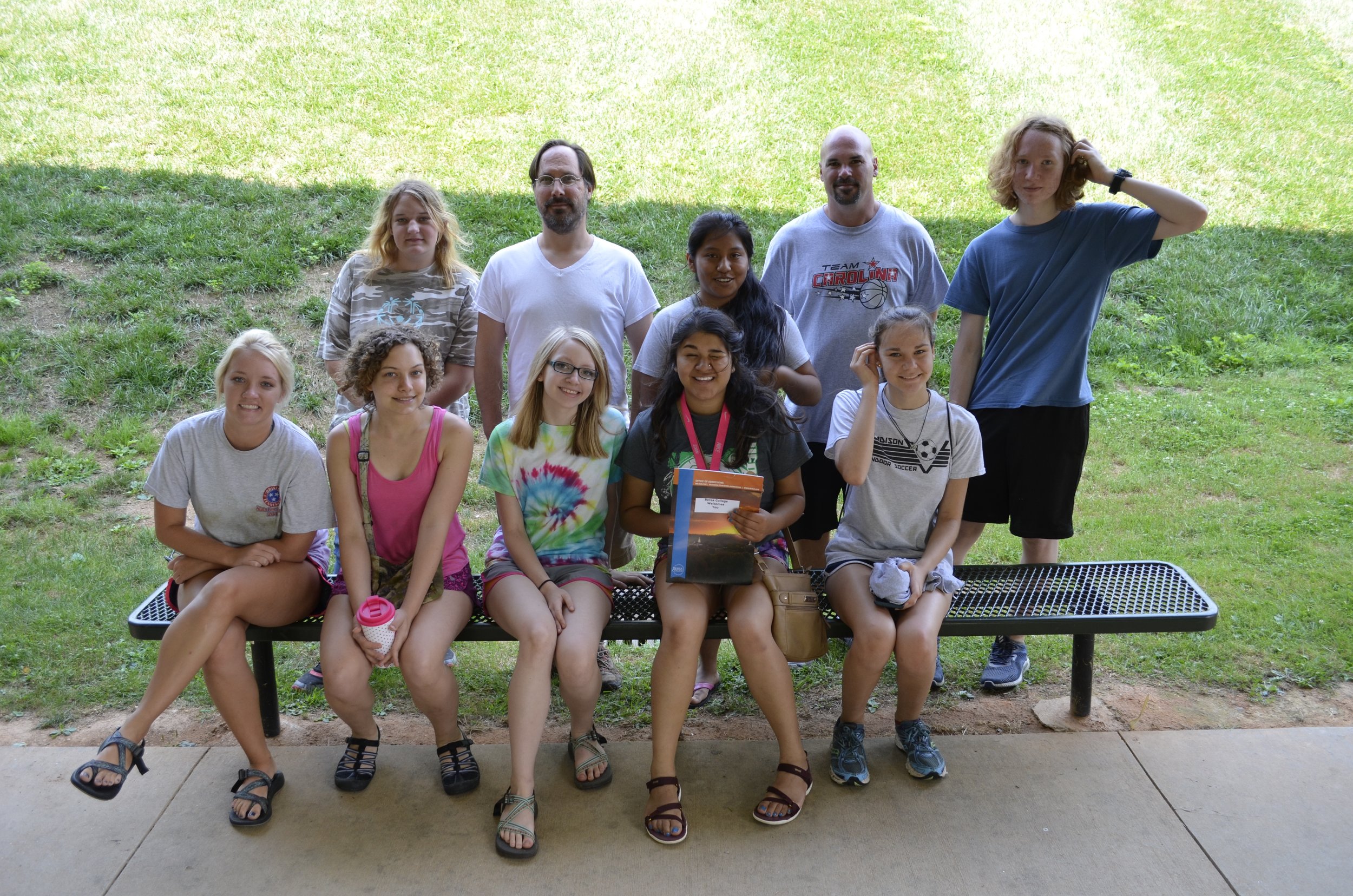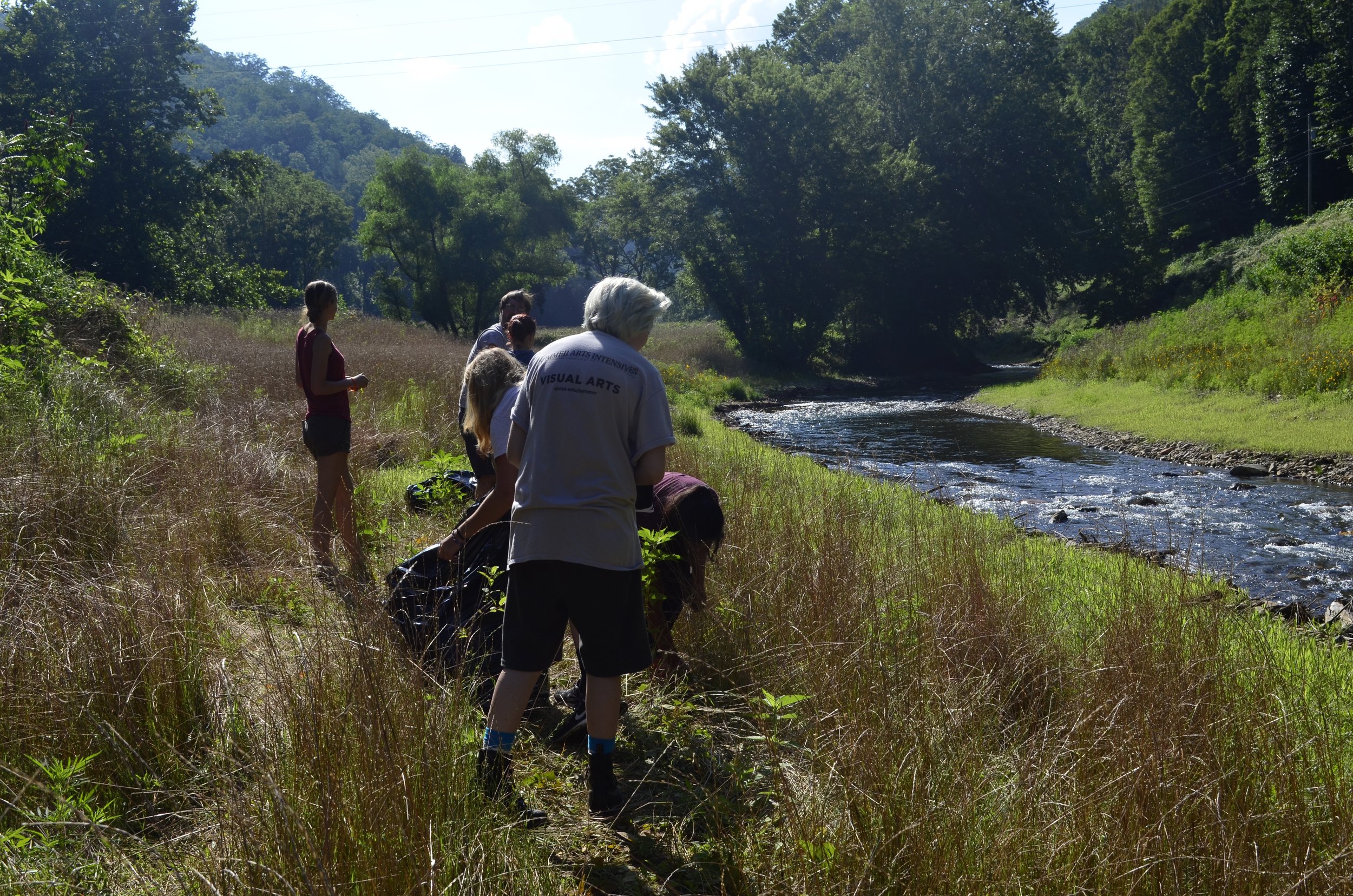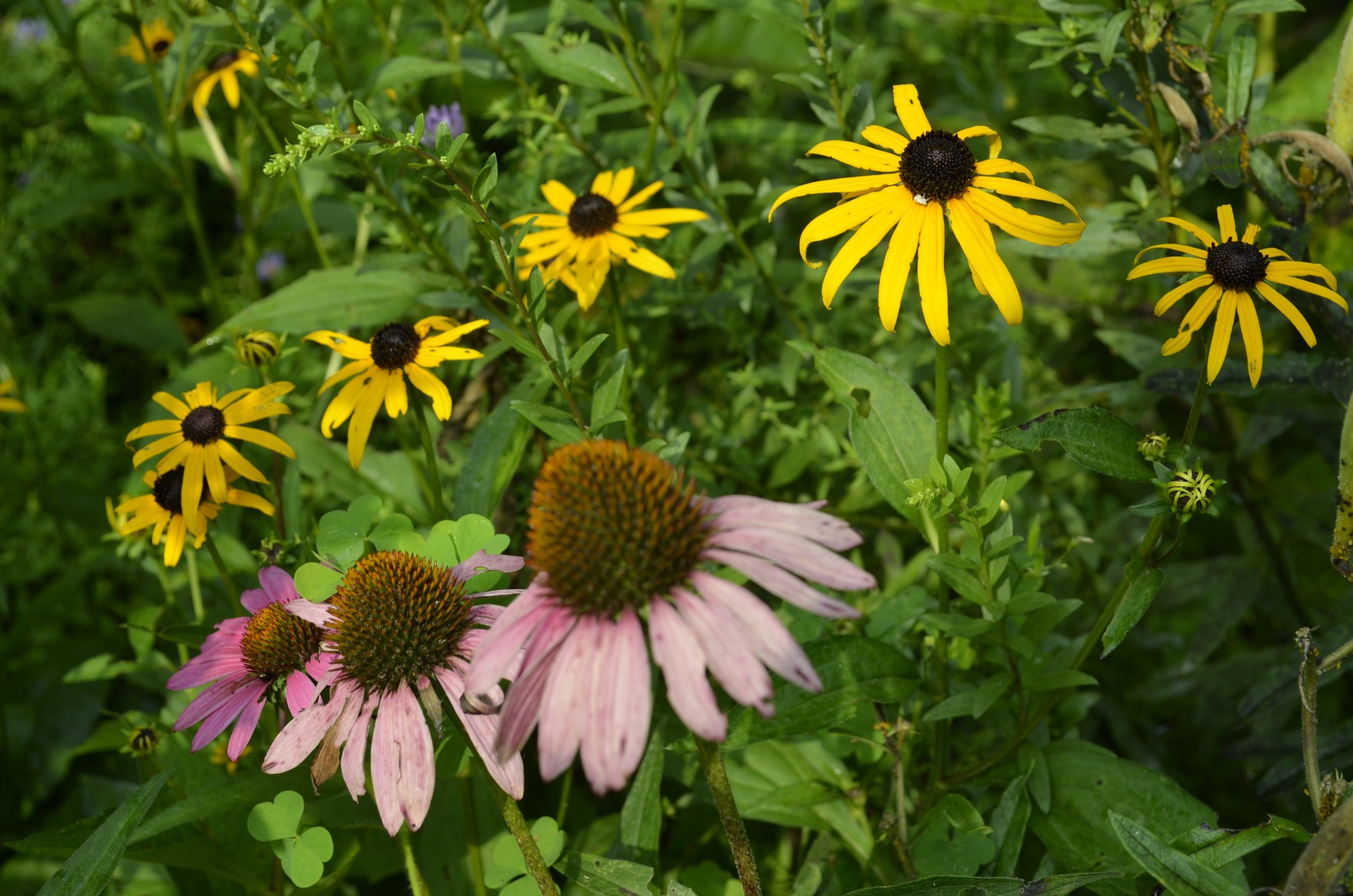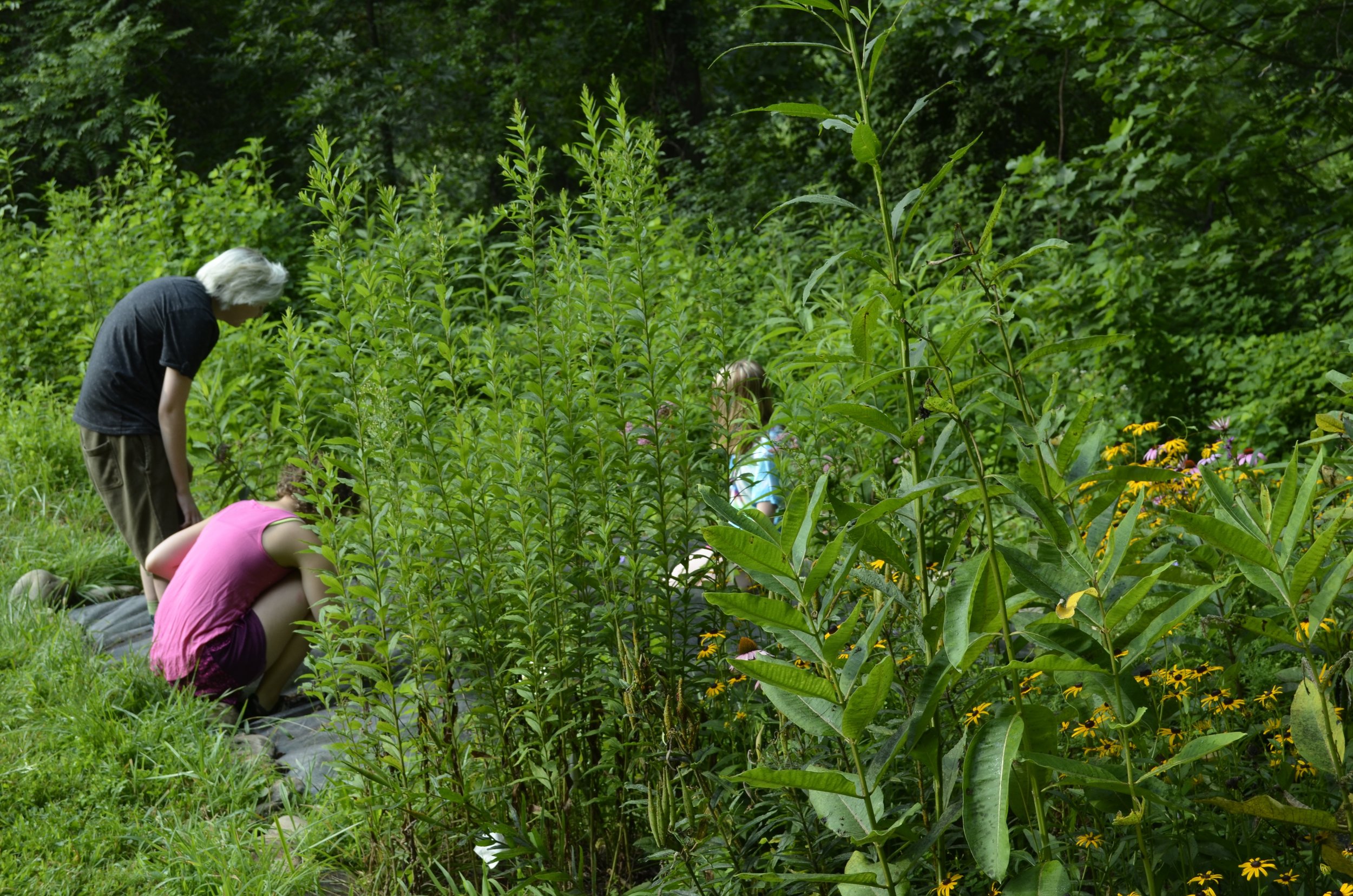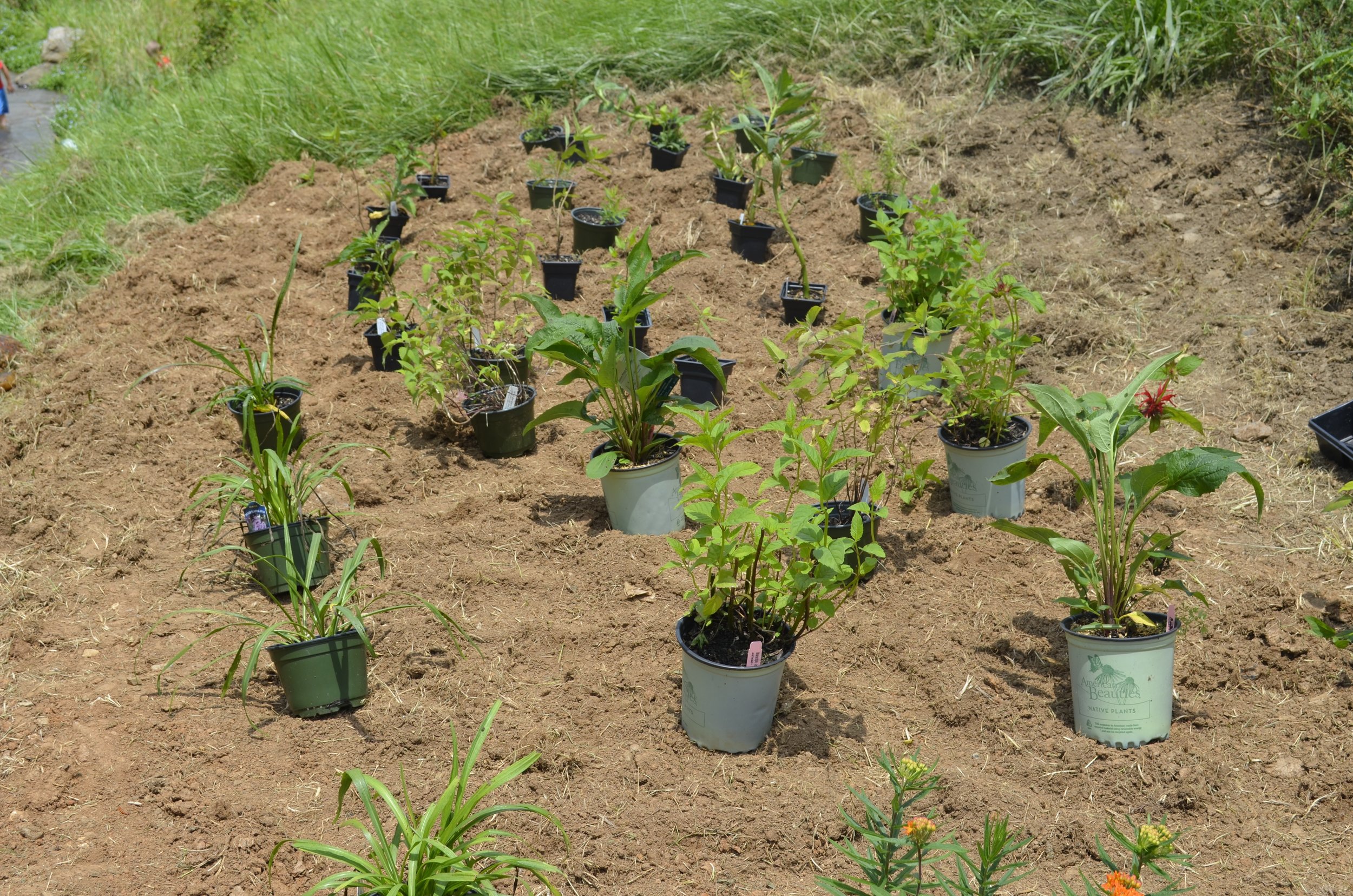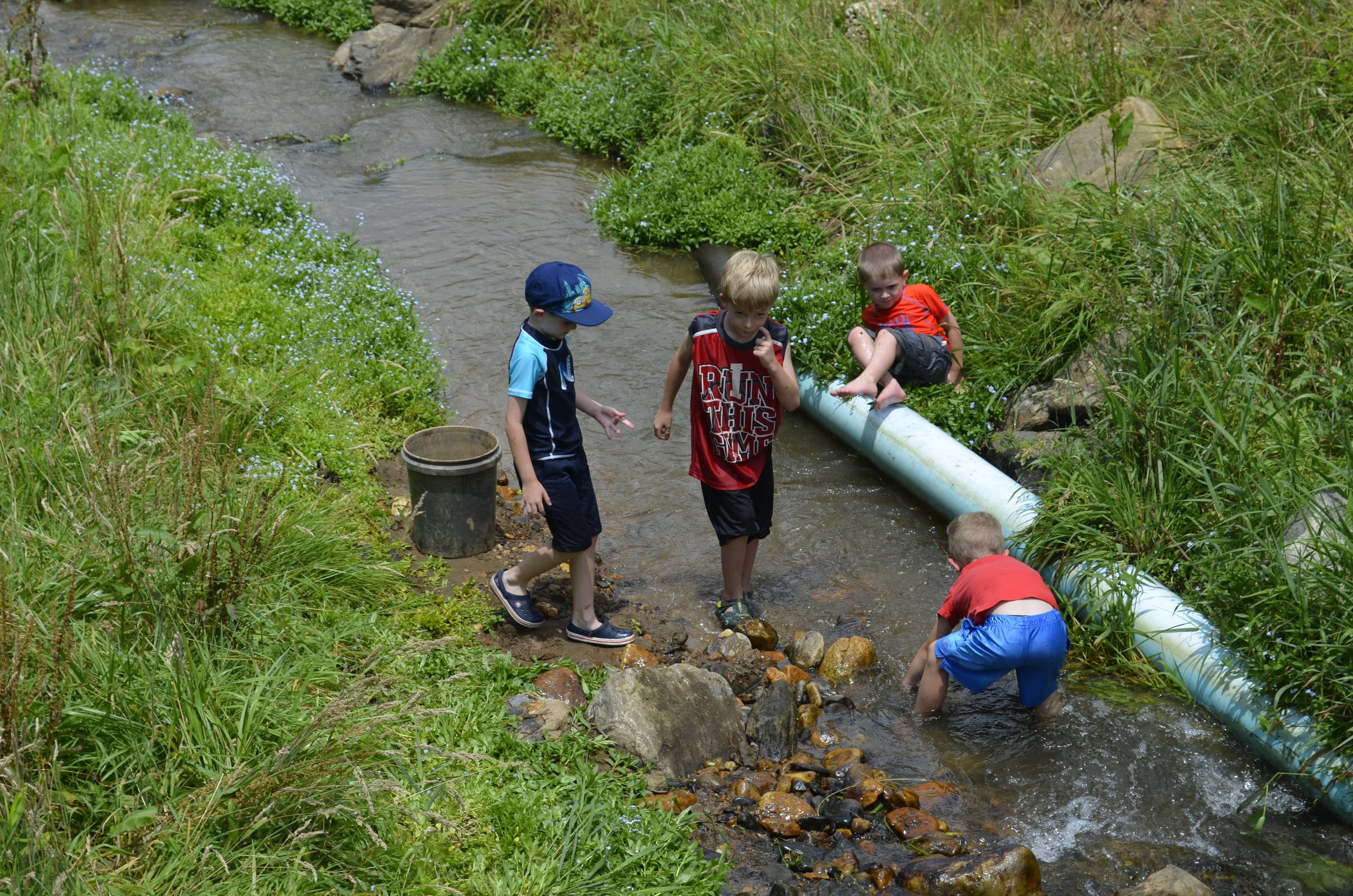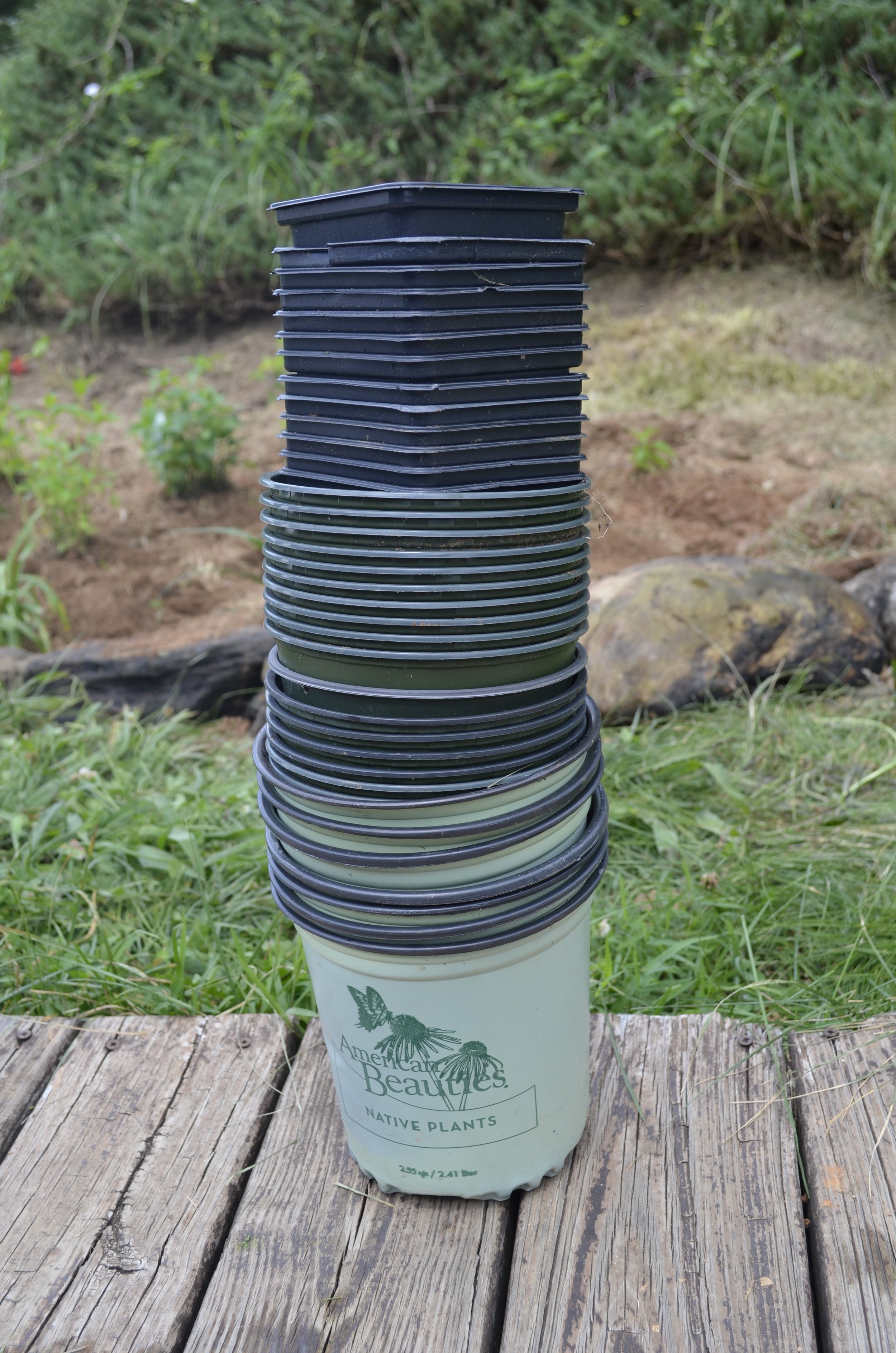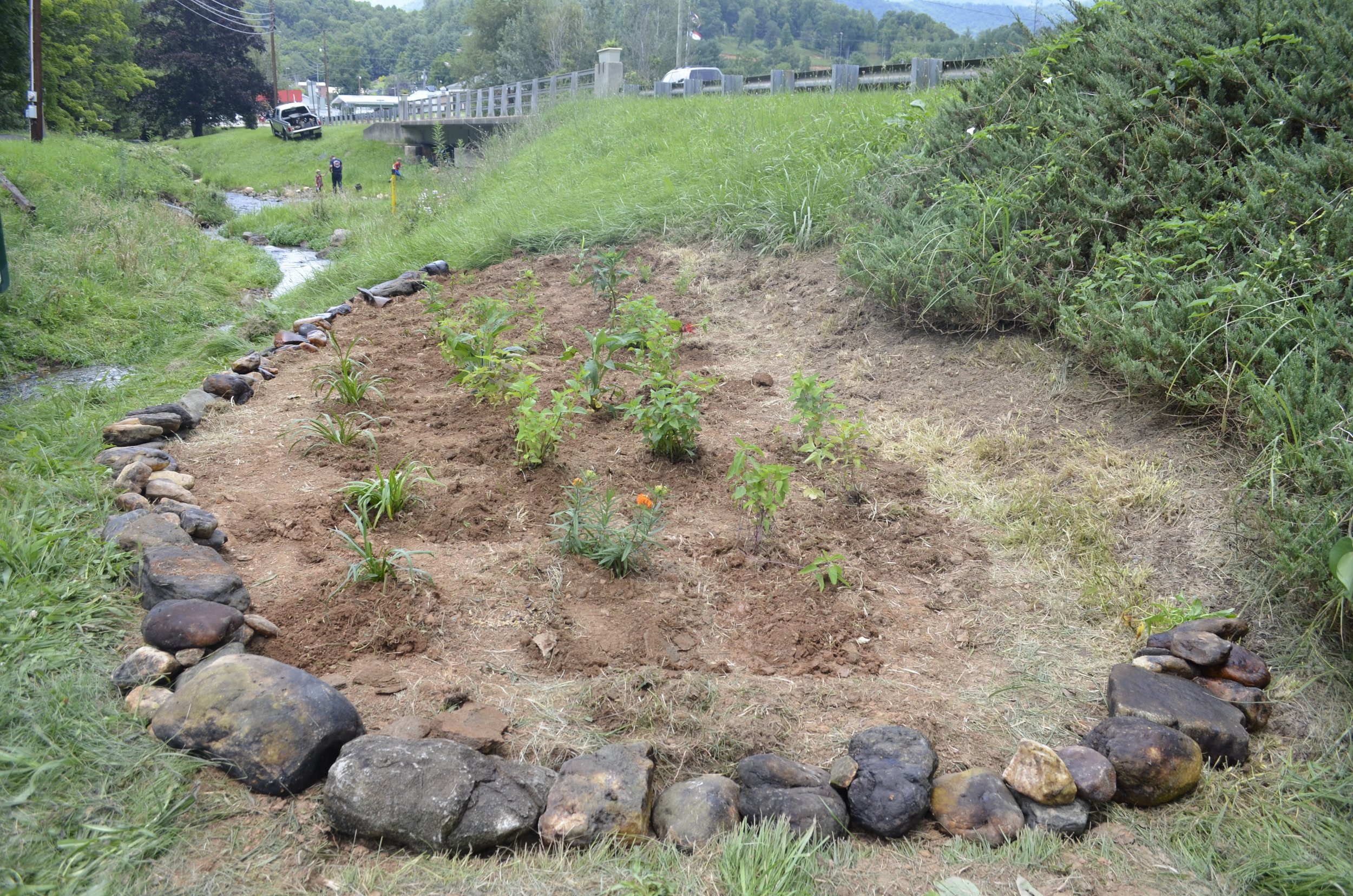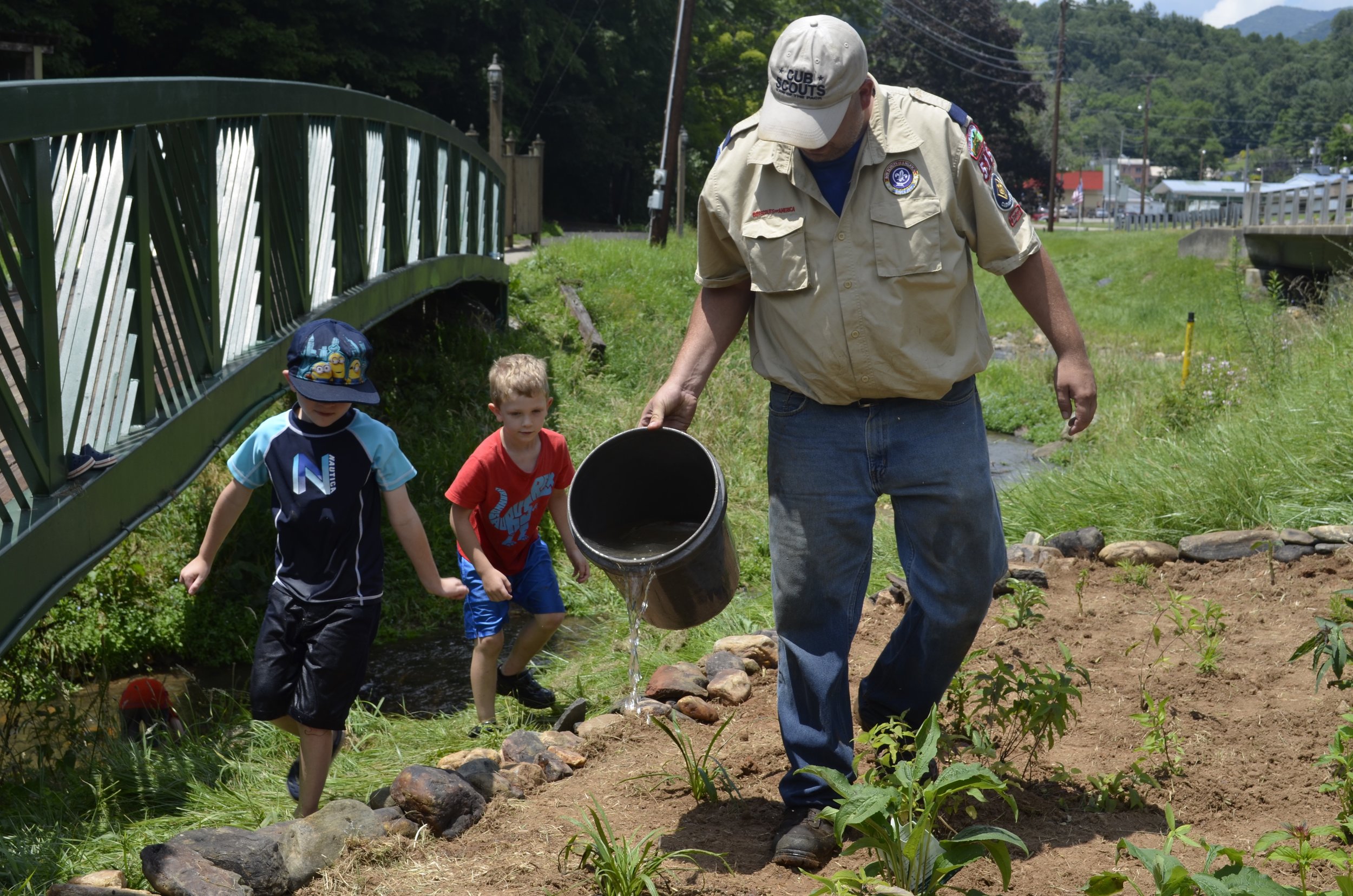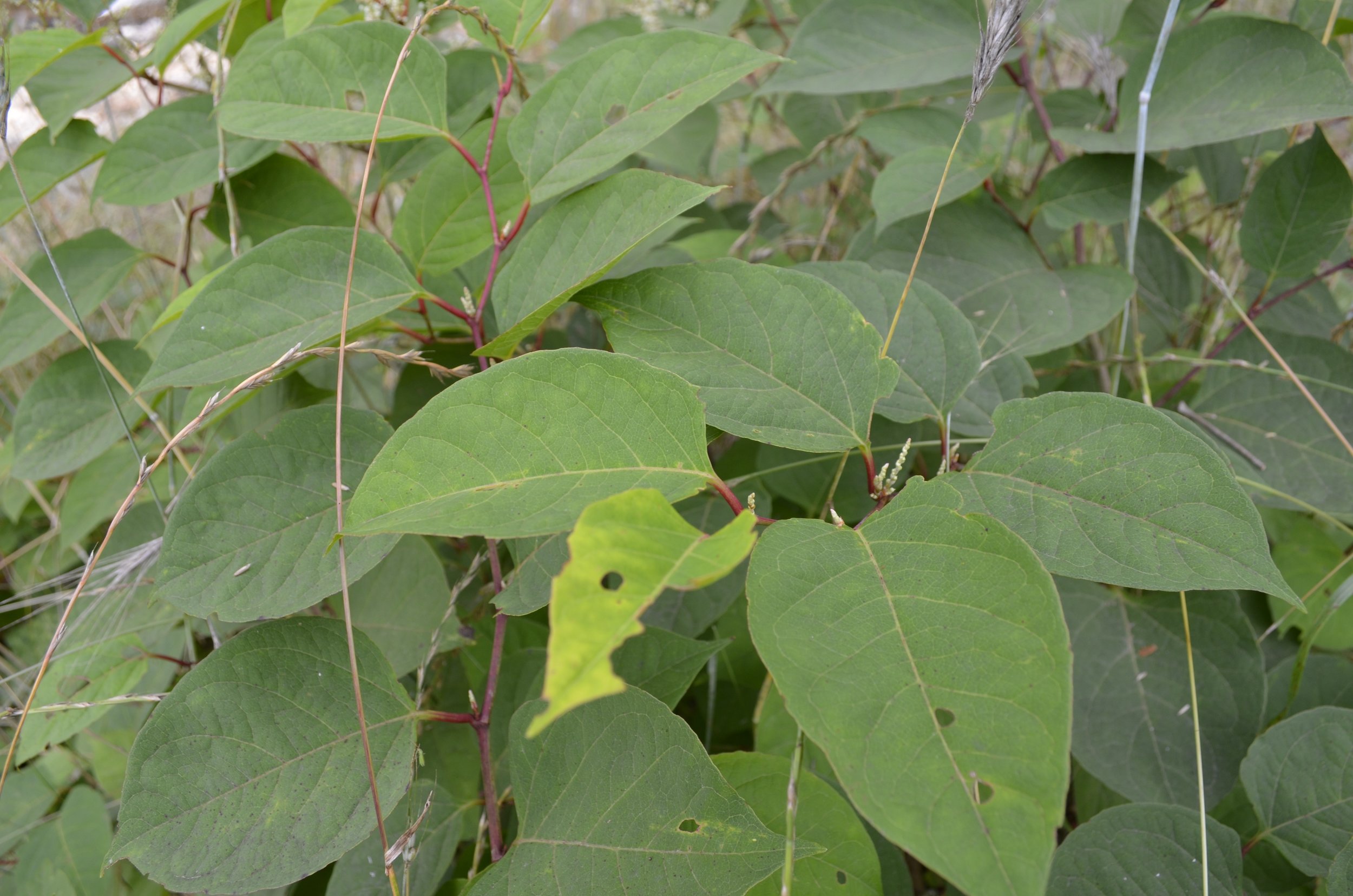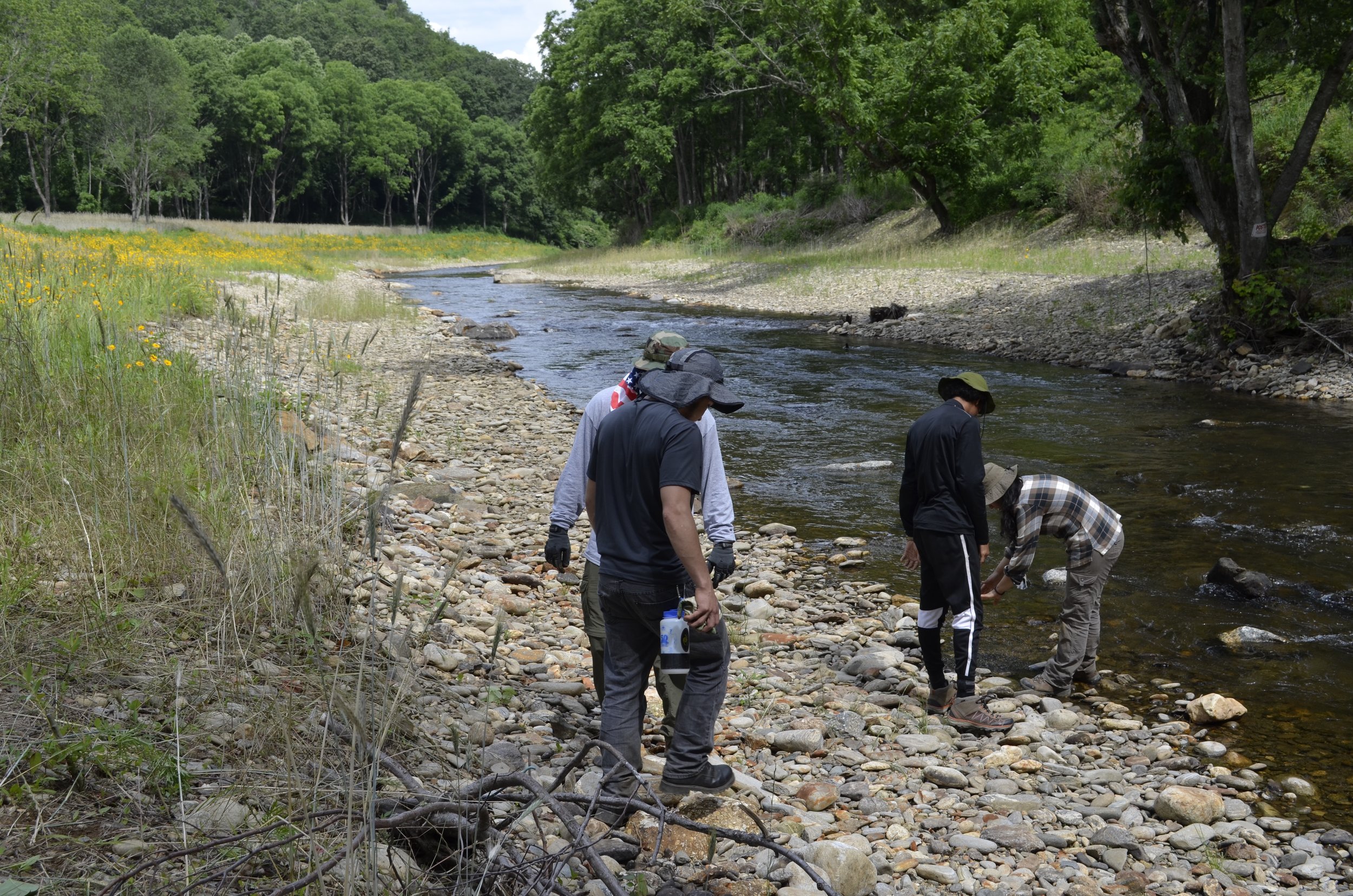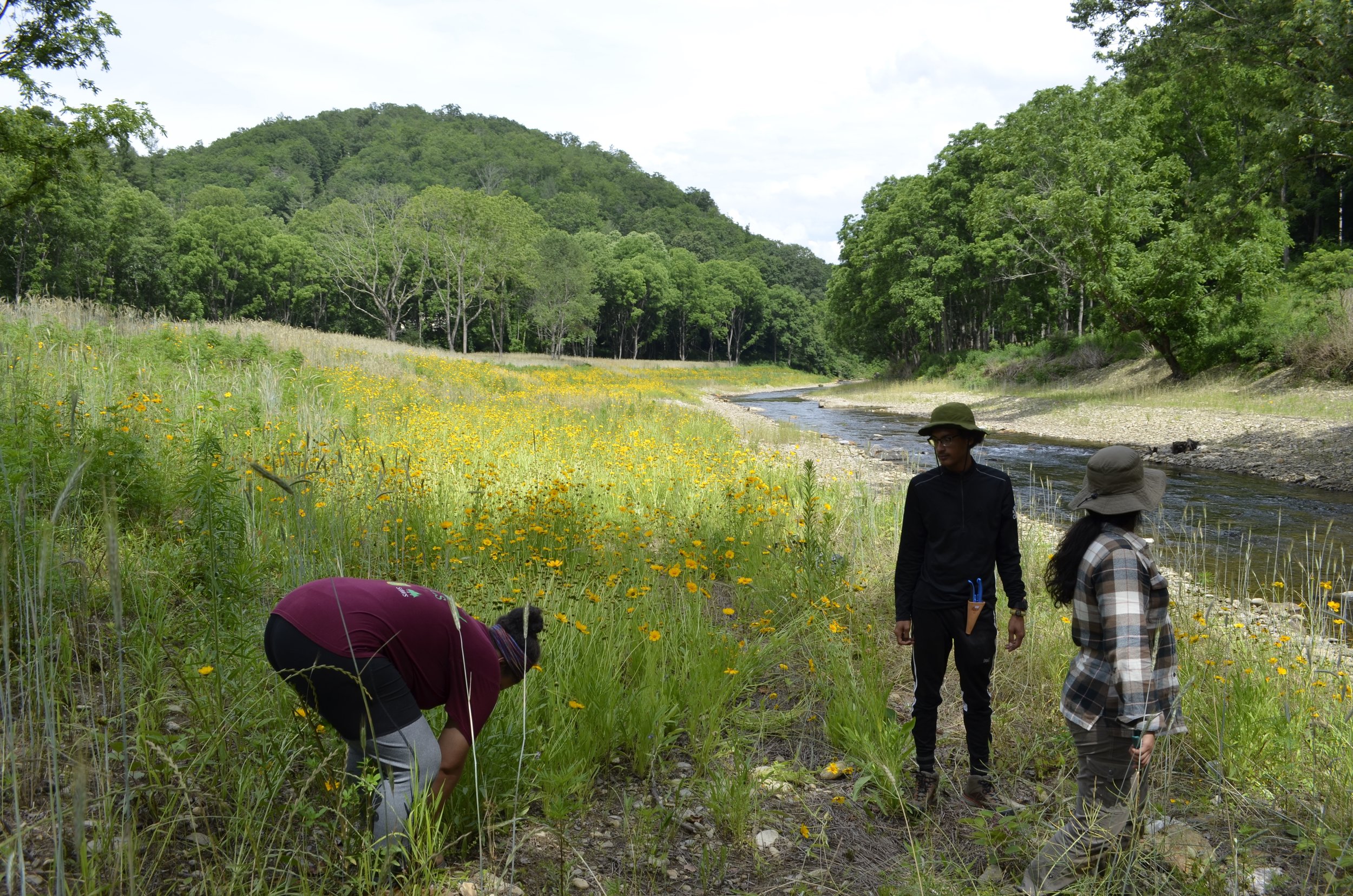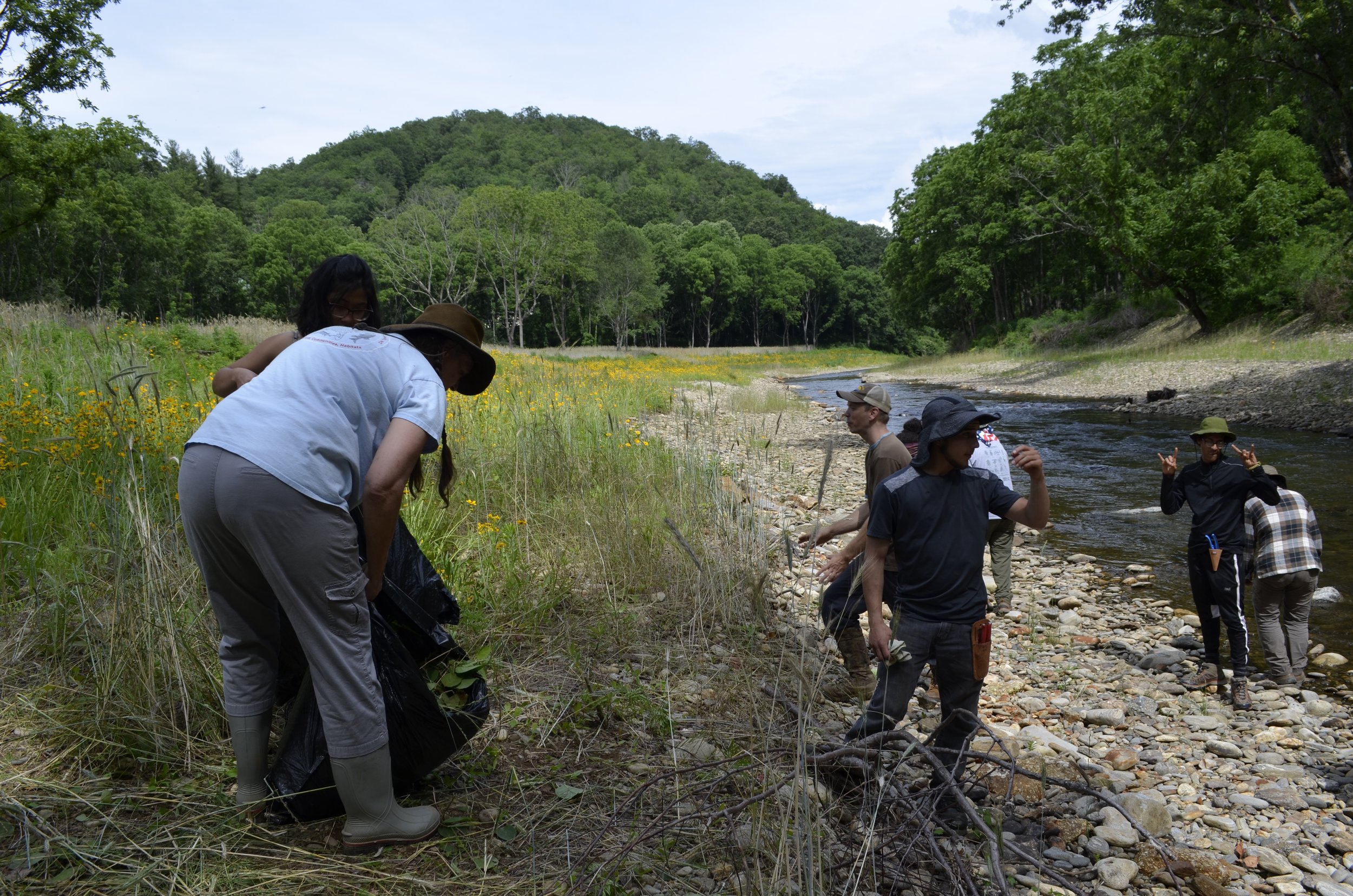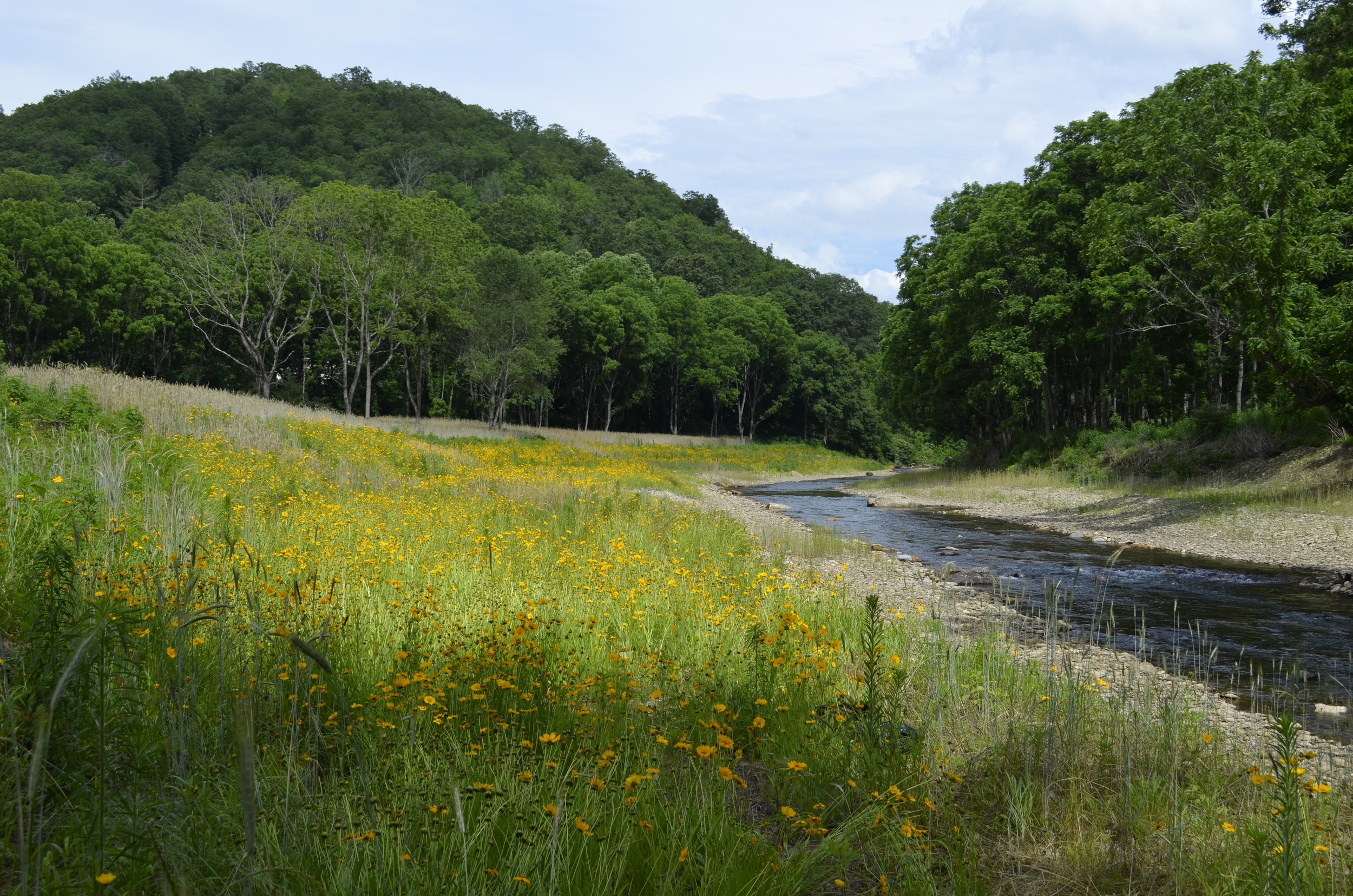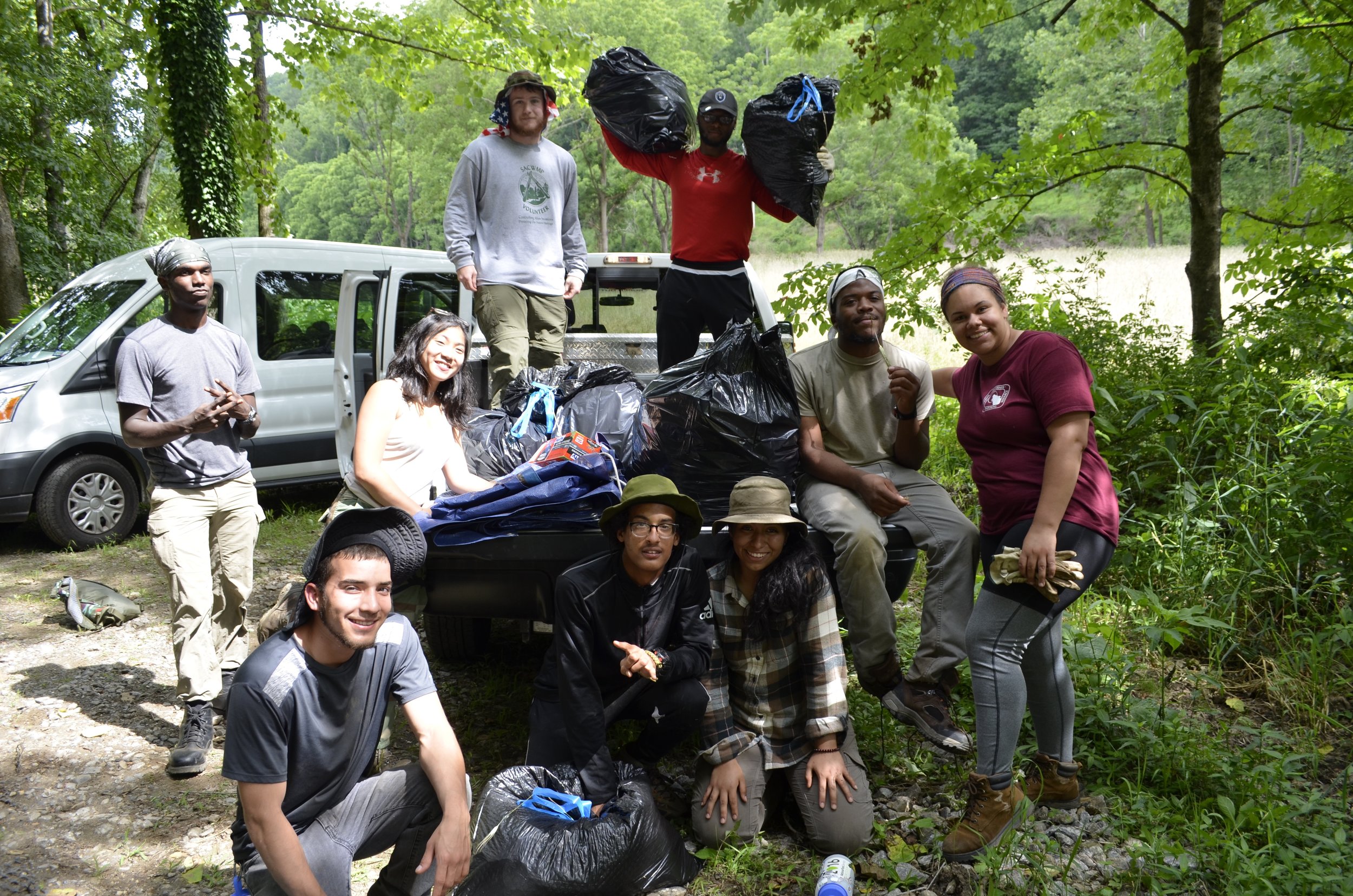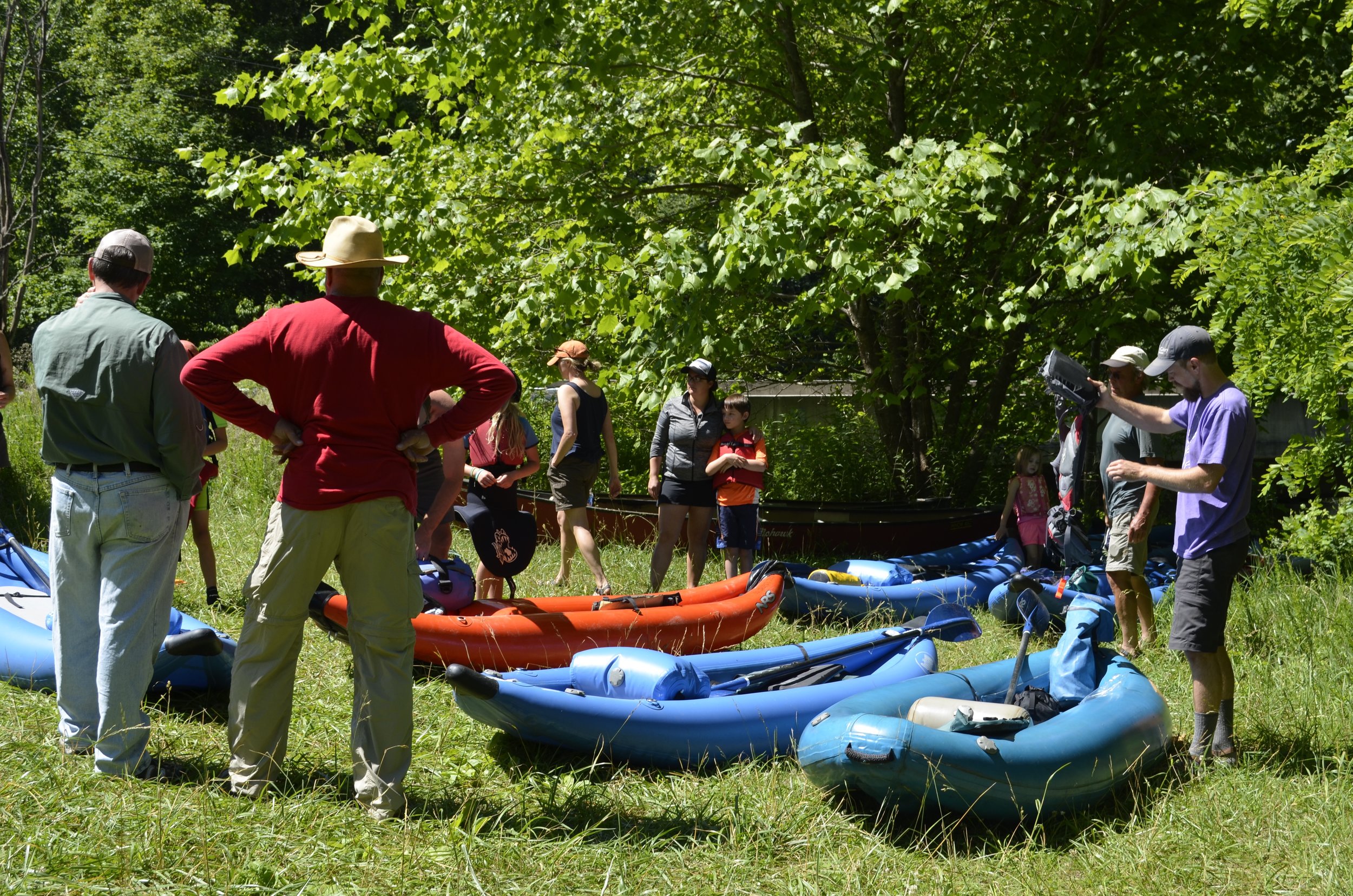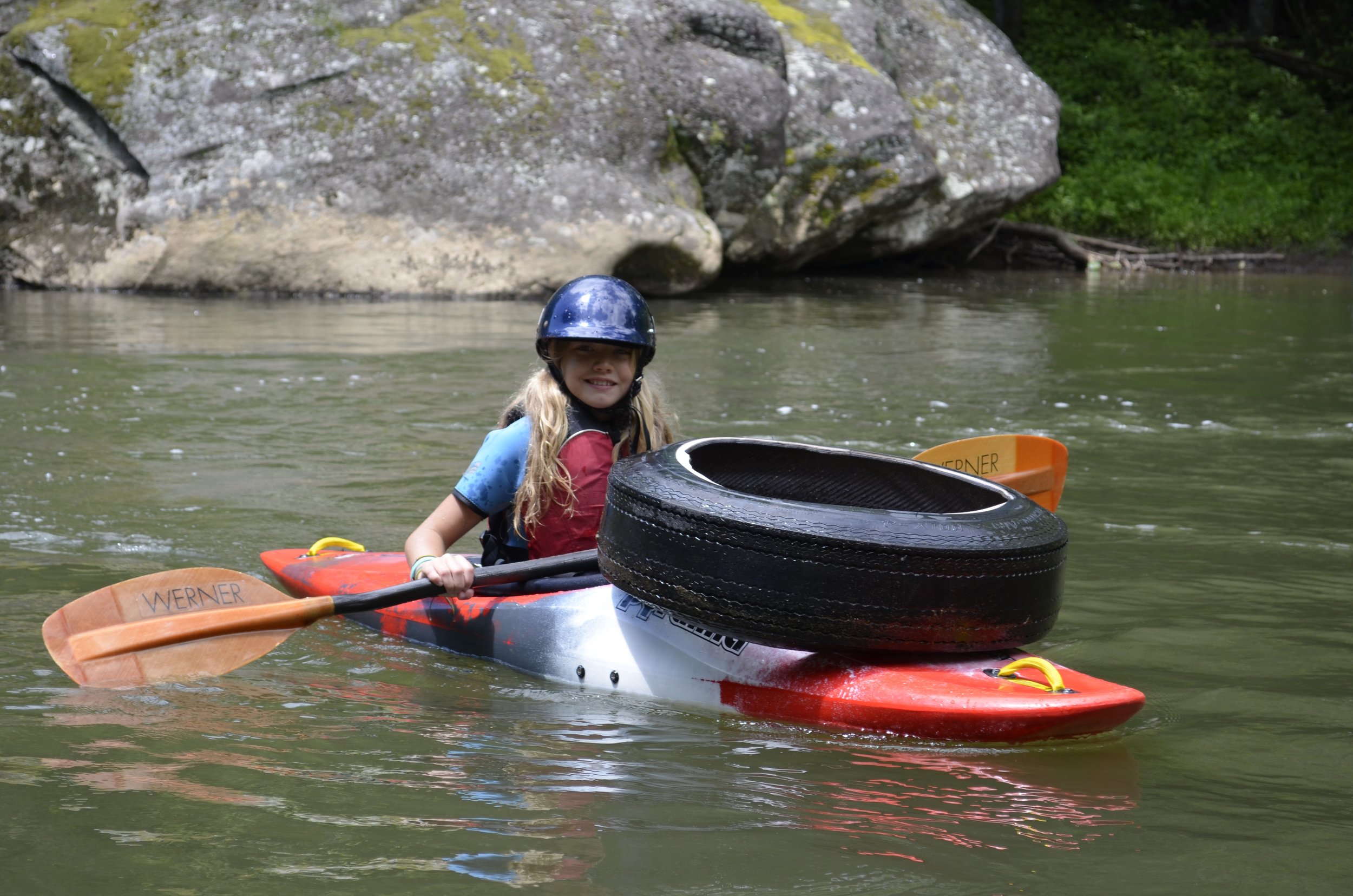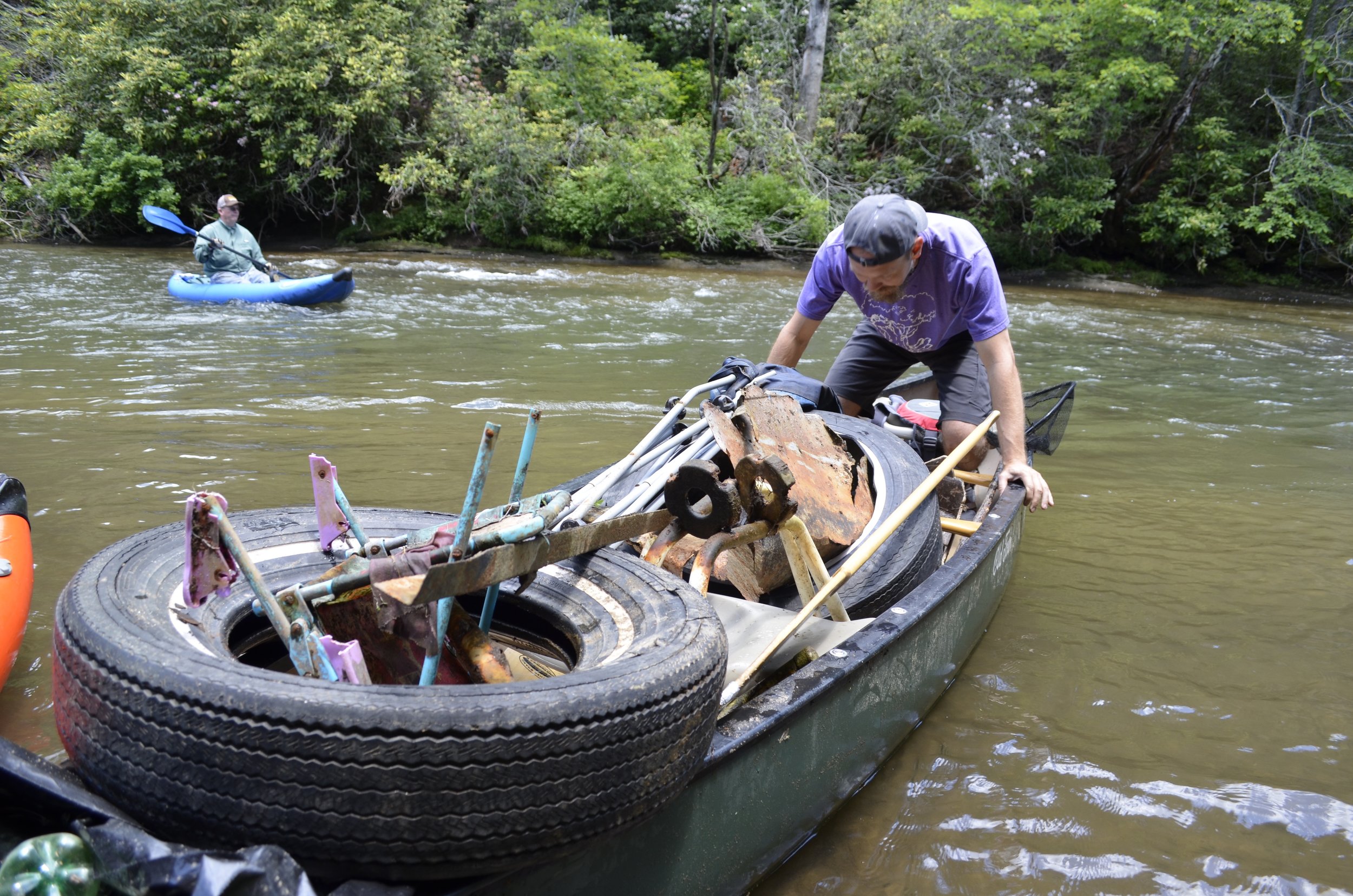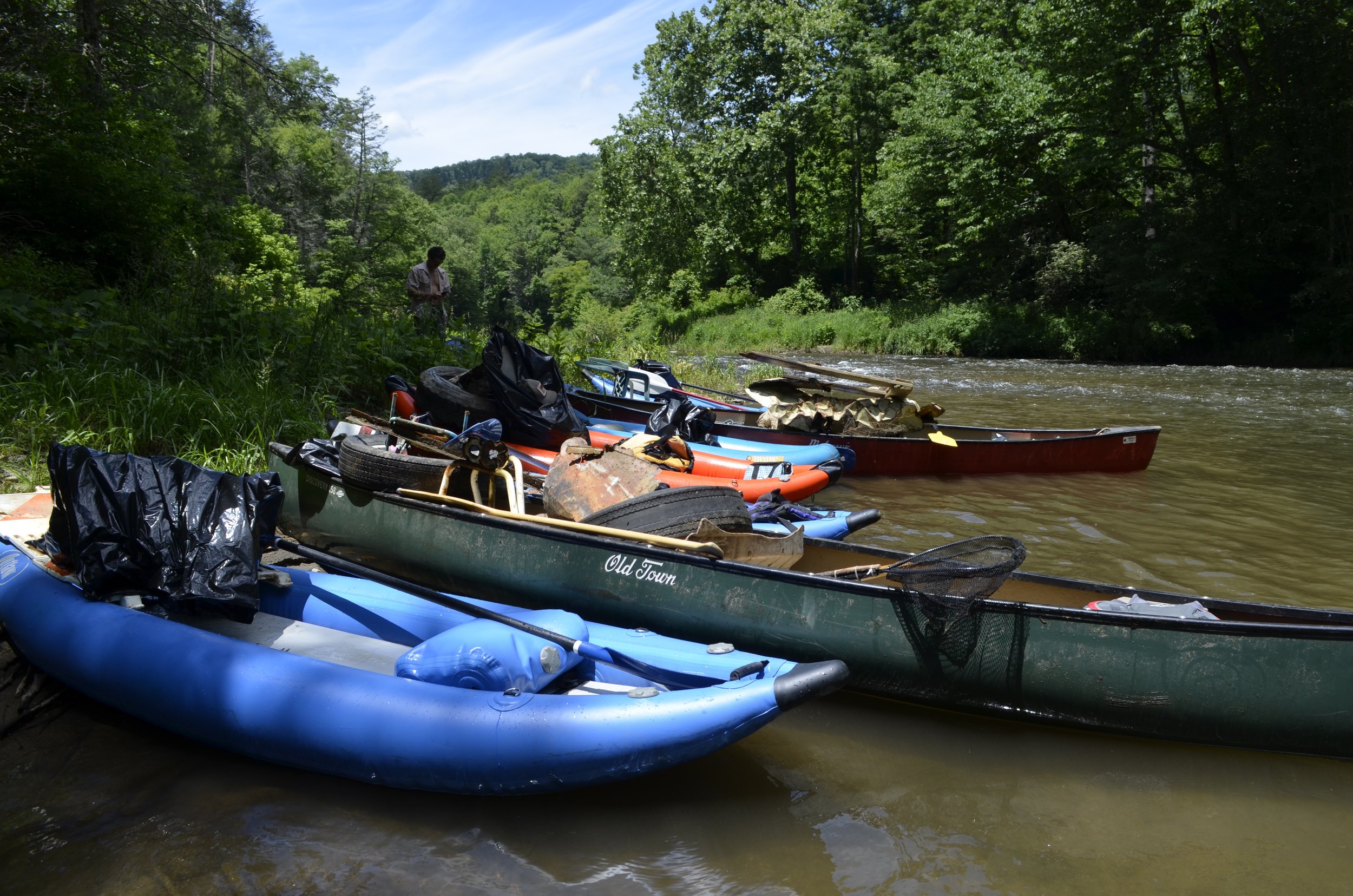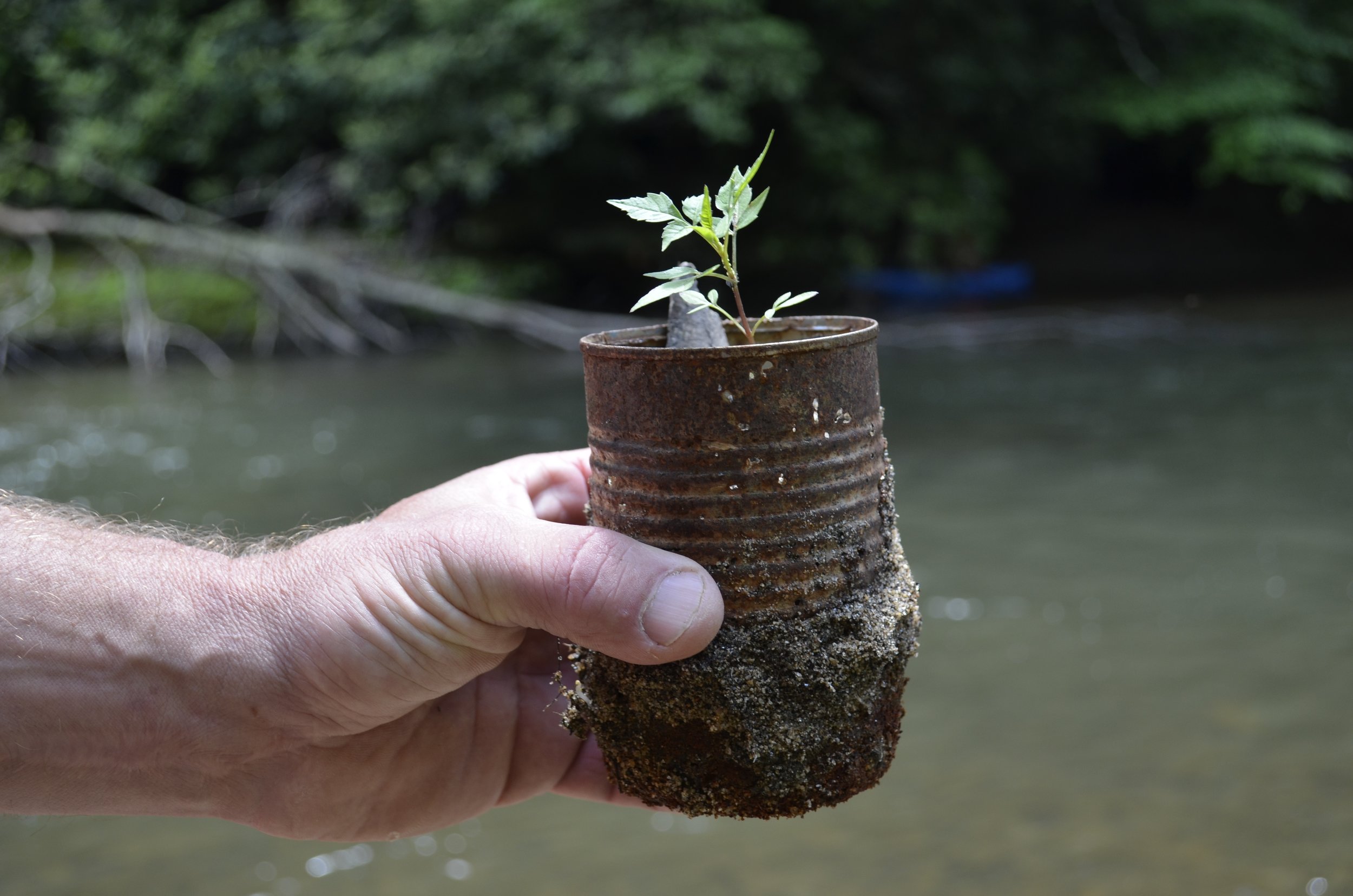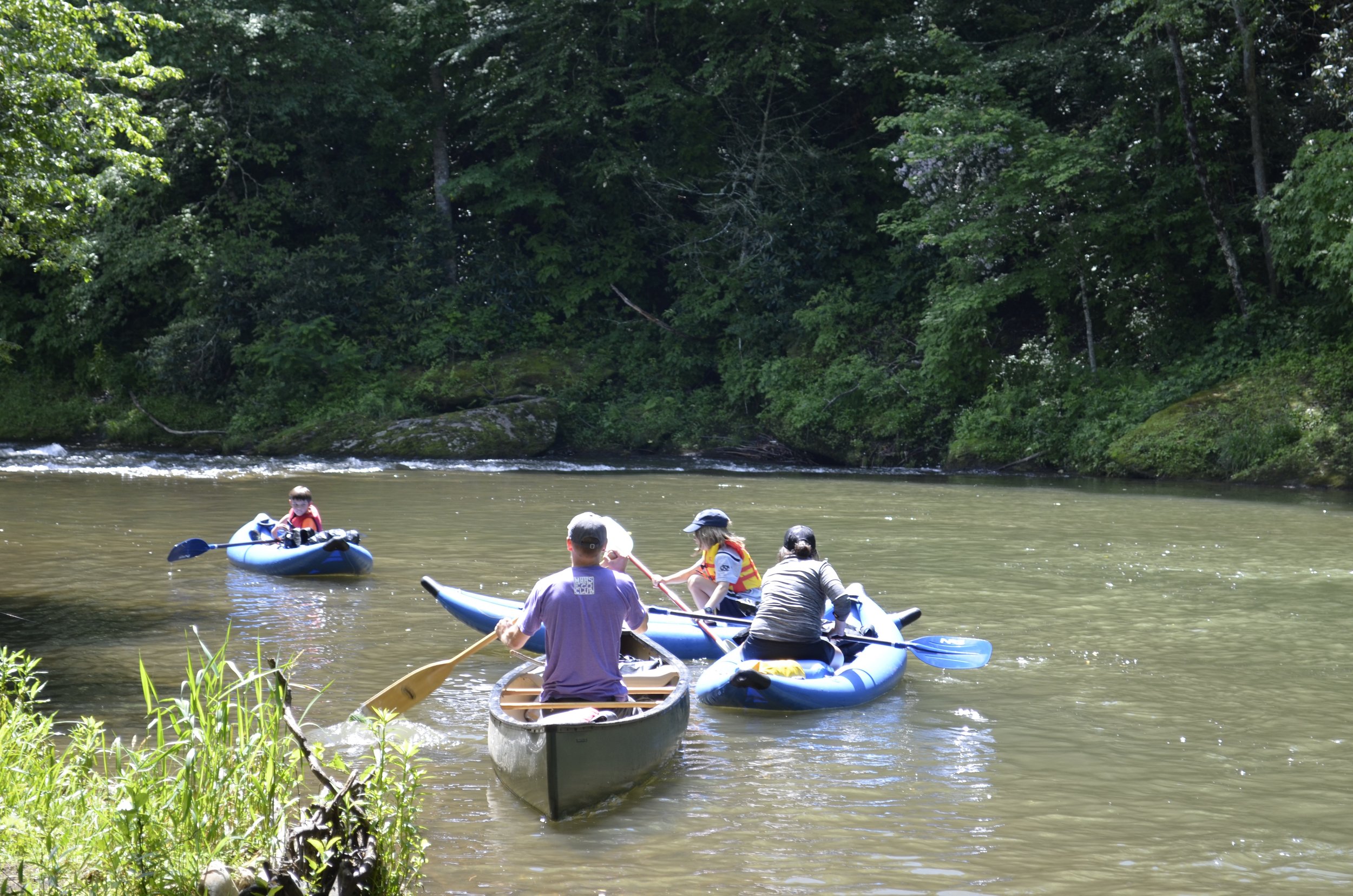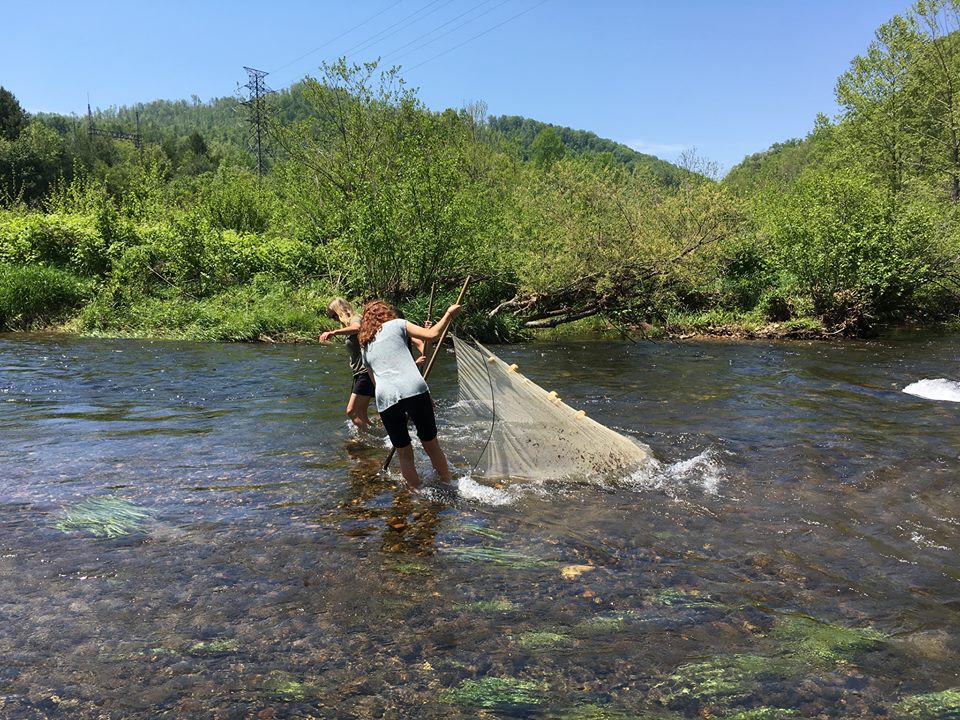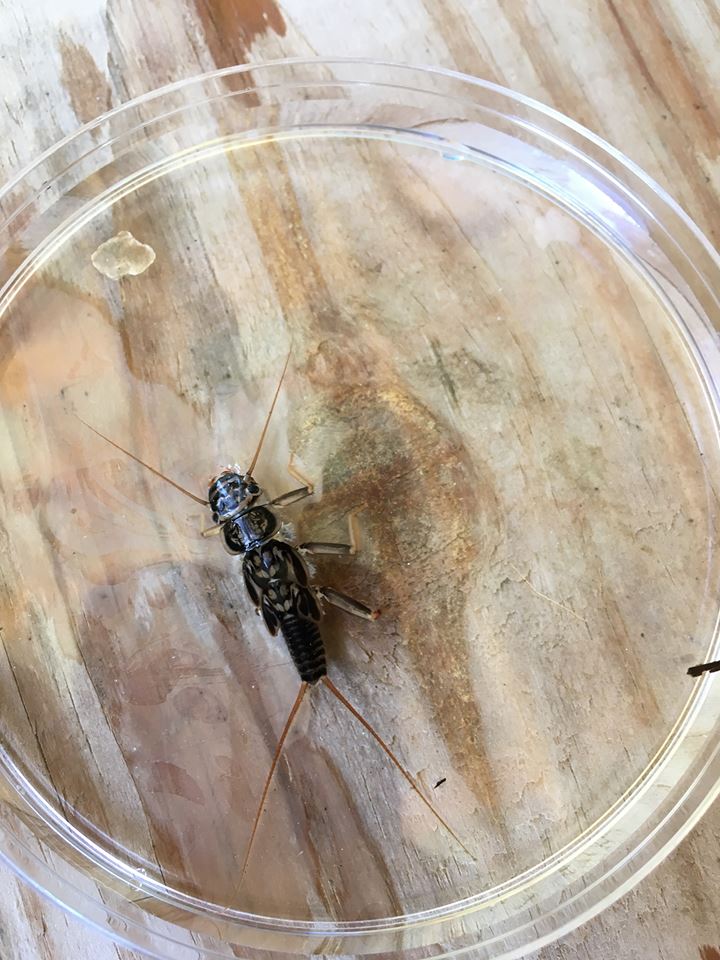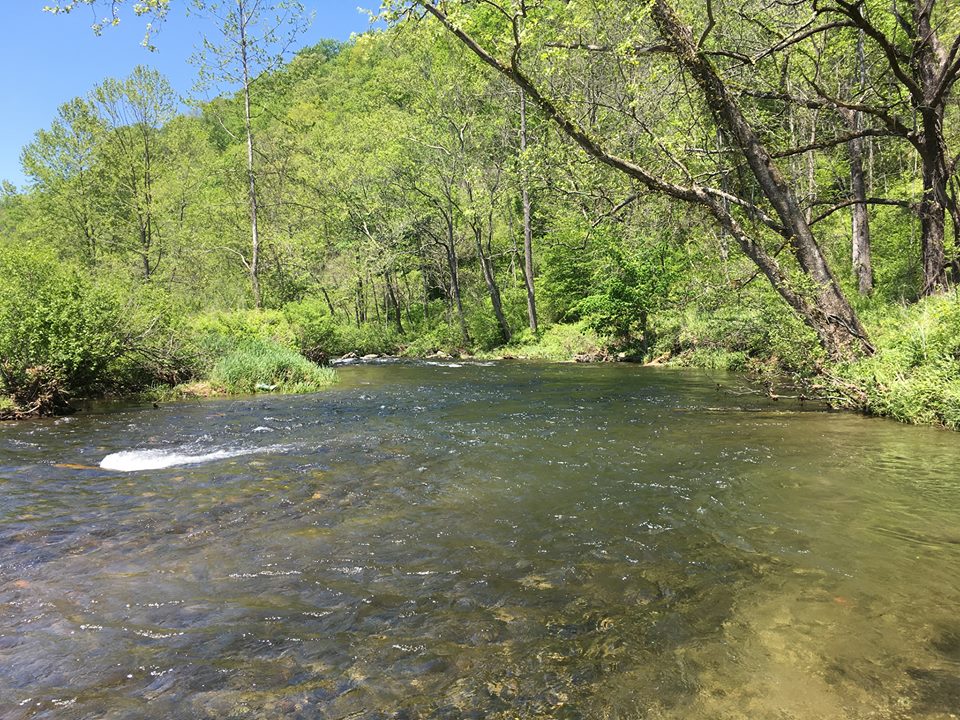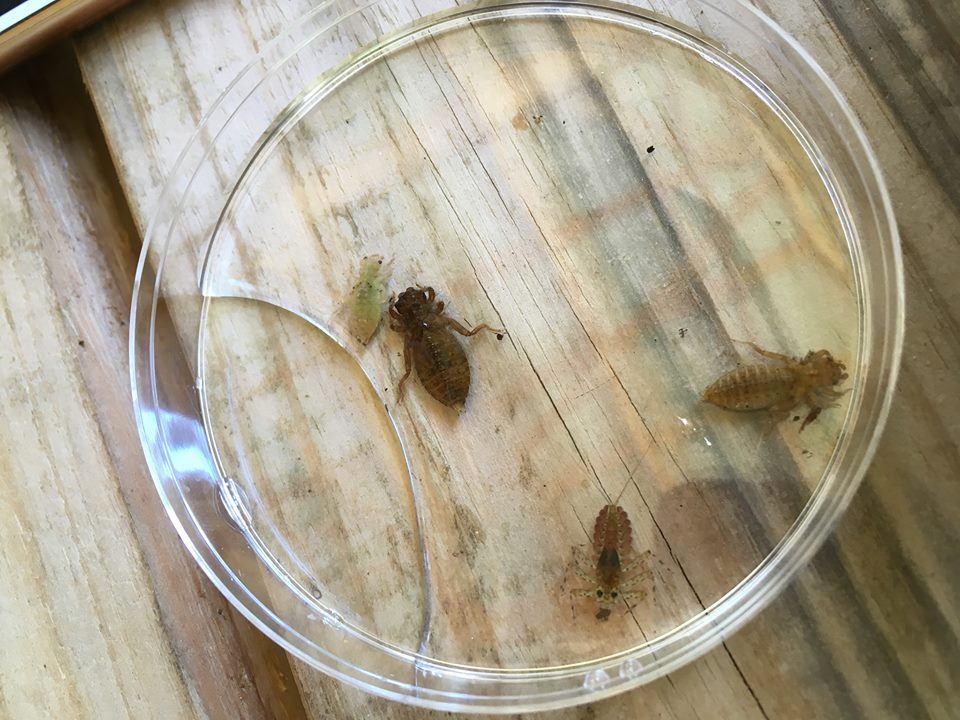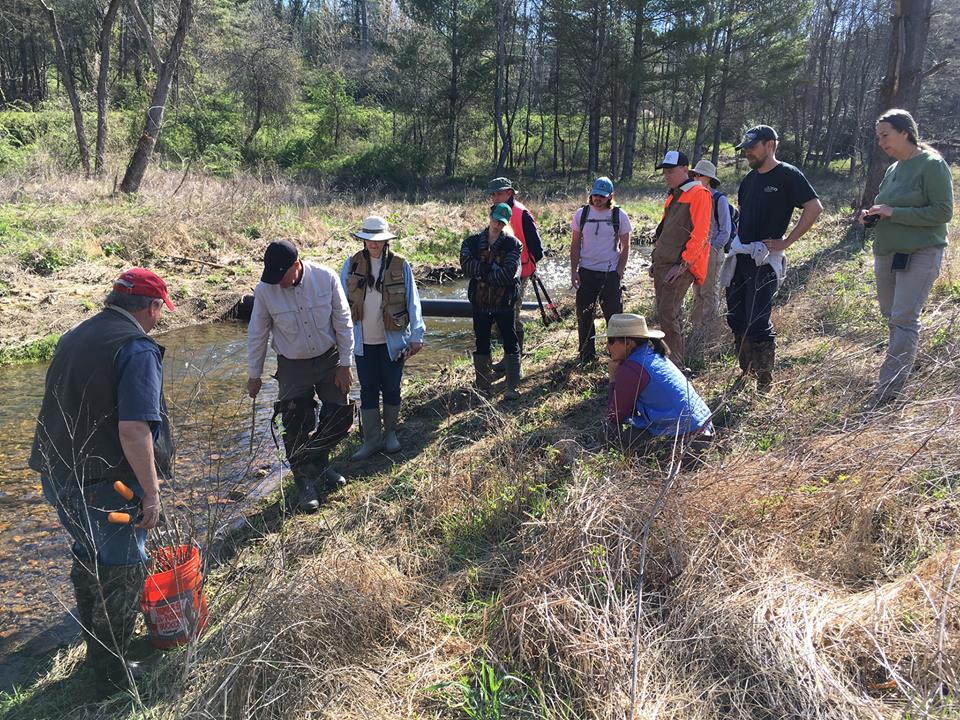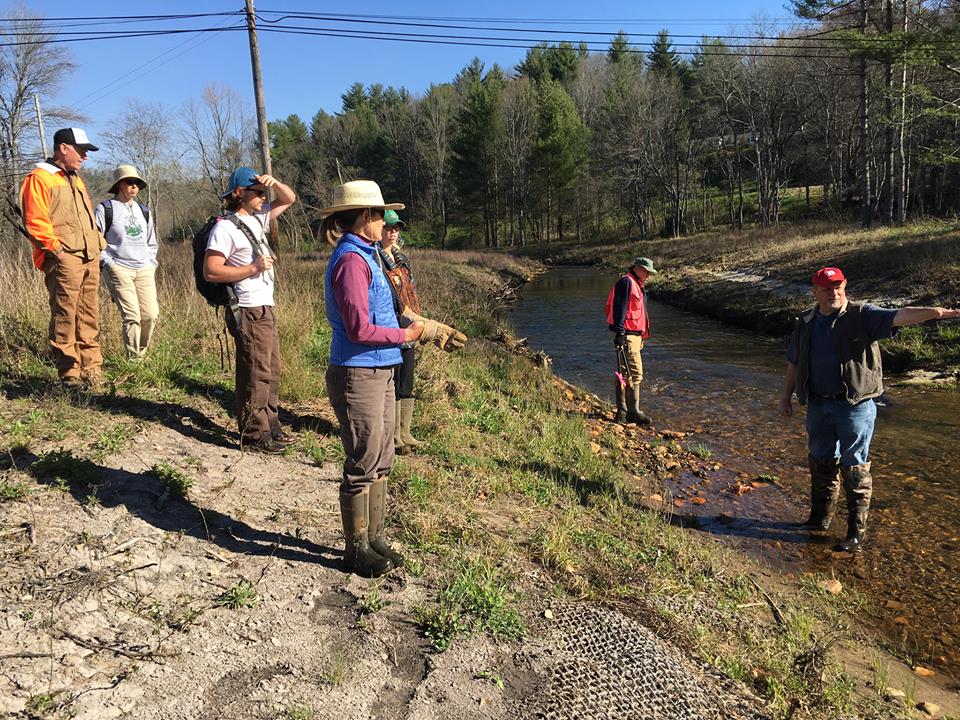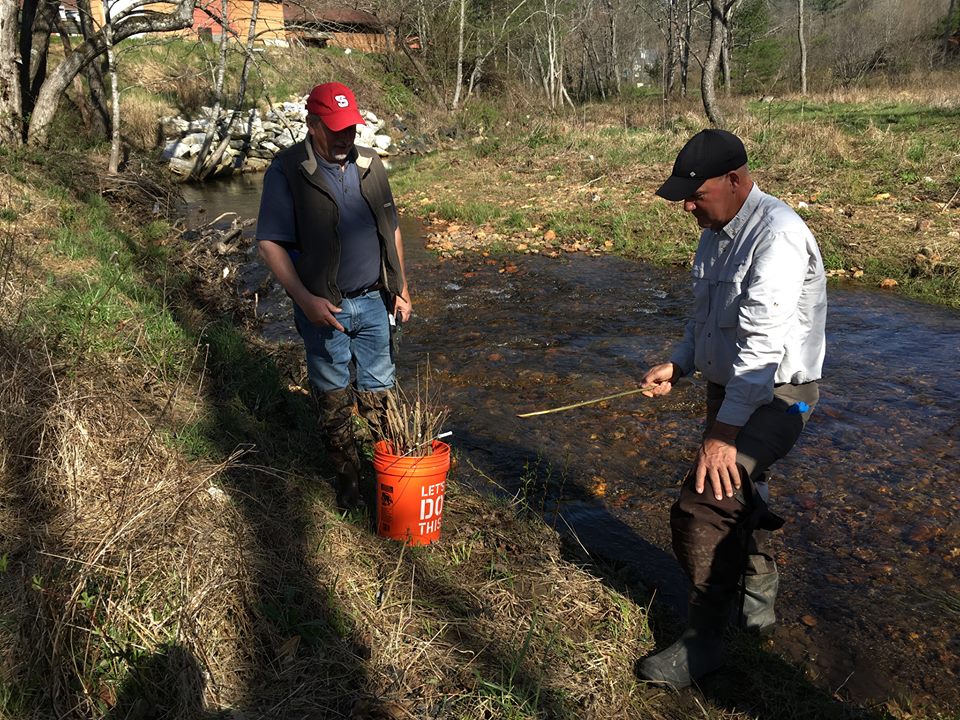River related science stations were set up along the North Toe River in Avery County for the 8th graders to get hands on learning experiences from. The students ran several chemistry tests and located many macroinvertebrate species in order to determine the overall water quality of the river, all while splashing around and having a good time.
Mitchell County Toes in the Toe
Mitchell County Toes in the Toe was a success! Fifth-graders from Deyton, Bowman, and Spruce Pine Montessori school all completed river stations that were put on by the NC Wildlife Resource Commission, U.S. Fish & Wildlife Service, River Link, Beekeepers, and Penland School of Crafts. Volunteers from the Mitchell High School FFA club did a tremendous job leading each group of kids to and from each station. Thank you to all the teachers, educators, and volunteers!
Student Volunteers
Thank you to the wonderful group of student volunteers from Yancey County who helped remove invasive plant species, clean up the local rivers and streams, and improve pollinator habitat at the high school.
Building Pollinator Habitat
Cub Scout Pack 515 helped build and plant a pollinator garden along the greenway in downtown Bakersville. The garden is filled with native flowering plants that will attract pollinators such as butterflies, bees, and birds.
Invasive Removal
A huge thank you to the Appalachian Trail Conservancy for bringing a crew of interns over for some invasive species removal at the Cane River dam removal site. We focused on Japanese Knotweed, a rigorously growing and rapidly spreading herbaceous perennial.
North Toe Paddle & Clean
The Paddle & Clean on the North Toe River was a success! We had two canoes, two kayaks, and eight single rafts all full of tires, metal, miscellaneous trash, and a whole lot of smiles. Thank you to the local volunteers that came out to help keep our rivers clean. It was a good day on the river.
Cane River Benthic Invertebrates
Mountain Heritage AP Environmental Science students collecting benthic invertebrates in Cane River. They collected several pollution intolerant species from the river, which is good news as an indicator of healthy water quality.
https://ncdenr.s3.amazonaws.com/…/NCDWRMacroinvertebrate-SO…
The link above is a guide to classifying benthos samples. This is one of the ways North Carolina water quality specialists assess water quality.
Cane River Dam Removal Update
Roots of Resilience Film Festival: Cultivating Sustainable Community in the High Country
https://sd.appstate.edu/events/roots-resilience-film-festival
Friday, April 28 at 7:00 pm
PSU 201AB Blue Ridge Ballroom
Free and open to the public; refreshments provided
Sustainability endeavors are growing strong in our community. In the High Country, we share a rich history of working together to ensure that our mountain region will forever be a wonderful place to call home. The Roots of Resilience Film Festival celebrates some of these efforts through a series of seven mini-documentaries, each spotlighting local people and organizations working on various dimensions of cultivating sustainable community, including:
- ASU Office of Sustainability (campus sustainability)
- Blue Ridge Conservancy (land protection)
- Blue Ridge RC&D (fire-adapted communities)
- Blue Ridge Women in Agriculture (sustainable agriculture)
- New River Conservancy (water protection)
- Todd Listening Project (community development)
- Valle Crucis Community Park (environmental education)
This event is hosted by participants in the Sustainable Development course Outreach Skills for Sustainability, including students and instructor Laura England (englandle@appstate.edu).
Special thanks to Tom Hansell of University Documentary Film Services for assisting the class in planning and creating these mini-documentary films.
Grassy Creek Workshop
Planting native live stakes and removing invasive species along the Grassy Creek restoration site with the help of our local partners. Live stakes were planted on the stream side to enhance streambank stability and stream quality.

